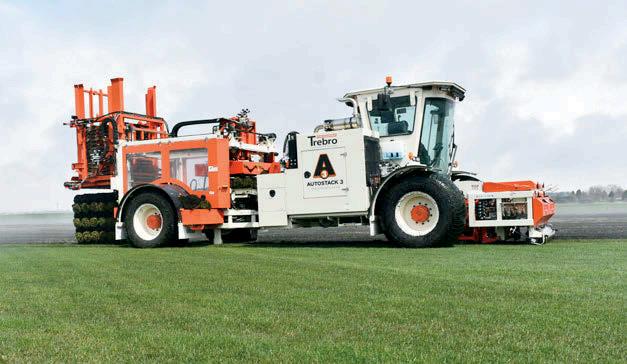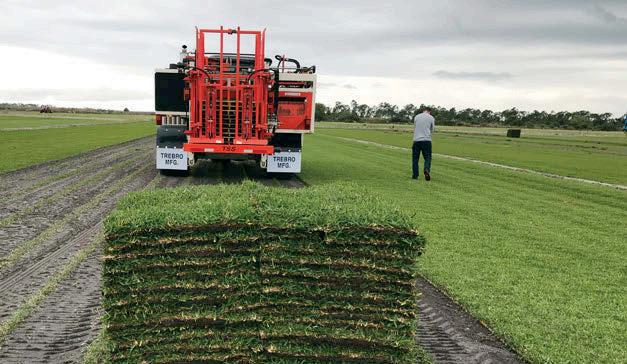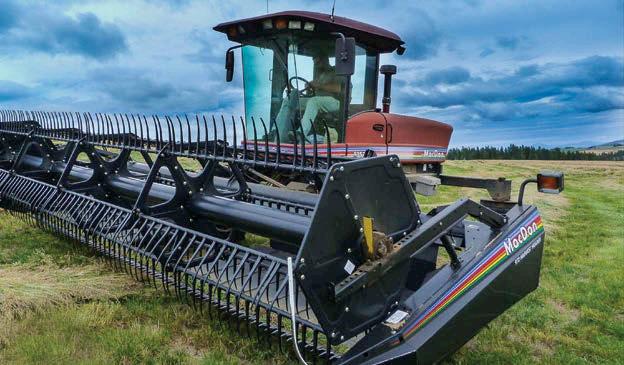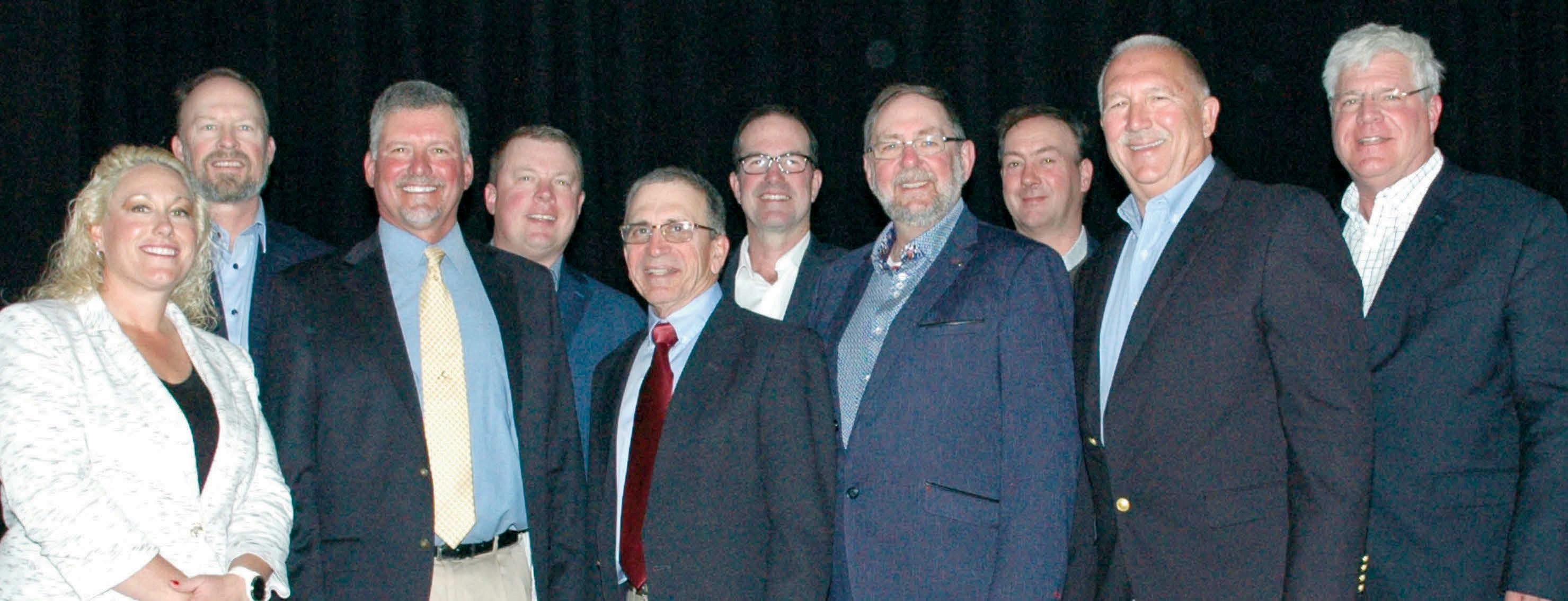
31 minute read
TPI’s 2022 International Education Conference & Field Day Recap
by TPIturfnews
7
CONFERENCE & FIELD DAY RECAP
Back together again—and it was WONDERFUL! Turfgrass Producers International held its International Education Conference & Field Day at California’s beautiful Loews Coronado Bay Resort and Spa on February 14-17, 2022. The setting was stunning, and spirits were high with this first in person gathering since the Covid shutdowns of 2020. Heading to the San Diego area to take part in this event were over 500 TPI members and guests, representing 95 farms, 38 states and 11 countries, including South Africa, Luxembourg, Germany, Turkey, and Argentina. During this truly global event, turfgrass producers engaged with exhibitors, networked, connected with long-time friends—and made new ones—while attending two days of outstanding education programs; checking out the indoor Exhibit Hall; taking part in the Field Day at American Sod Farms, and mingling and chatting as they enjoyed the many social functions. Feedback from attendees was overwhelmingly positive: Excellent! Exciting! Super Fun! Eye-Opening! Inspiring! Totally worthwhile! This special section of Turf News, compiled by Steve and Suz Trusty, captures many highlights of the Conference. Share it with all your team via the online version. To view even more conference photos, just go to SmugMug at www.tpiphotos.smugmug.com/.
TPI Annual Business Meeting
President Jim Keeven welcomed attendees and reported that the association remained strong through 2021 and that is continuing into 2022. He provided an overview of new initiatives for 2022. Secretary-Treasurer Diane Mischel reported that both TPI and The Lawn Institute (TLI) are on solid financial footing and thanked members for their continuing support. TPI Executive Director Casey Reynolds, PhD, continues to work in conjunction with the TPI Board of Trustees to serve the association’s members even more effectively, including in the promotion of natural grass and in regulatory affairs. The 2022 TPI officers and Board of Trustee members began their year of service on January 1, 2022. The slate of officers and trustees for 2023 was presented and elected unanimously. Stepping up as 2023 Secretary-Treasurer is Daniel Huggett; joining the 2023 Board of Trustees to serve three-year terms are Eric Hjort and Adam Russell. Those three will assume their duties on January 1, 2023.
Conference & Field Day photos by BE Videographers and Steve & Suz Trusty
The TPI 2022 Officers and Board of Trustees members are pictured here: (from left to right): Secretary-Treasurer Diane Mischel; Lindy Murff; President Jim Keeven, Wade Wilbur; Vice President Bob McCurdy; Past President Steve Griffen; Ron Schiedel, Albrecht Knigge, Larry LeMay, and Daniel Huggett. (Not pictured is Board of Trustees member Cliff Stewart.)
Super Bowl Watch Party
Kick off for the Conference started early, with perfect weather for the optional Super Bowl Watch Party that extended from the lobby to the Bay Terrace. Throughout the game and half-time show, folks mingled and chatted; munched and sipped—a super start to a super Conference.
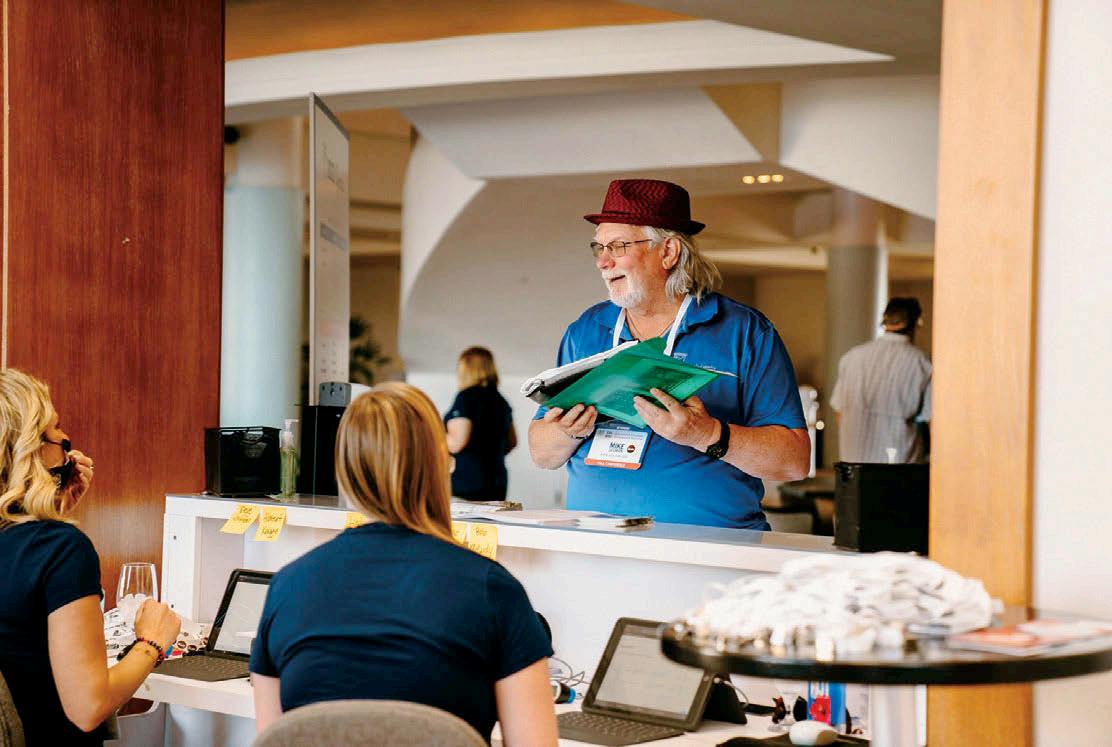
Education Sessions Excellent
Two full days of education sessions matched engaging speakers with an array of topics addressing key issues ranging from industry advocacy, labor issues, the proposed U.S. sod checkoff, strides in regulatory issues related to turfgrass sod as an agricultural commodity, agronomic research, the challenges of family businesses, and the ever-popular Show & Tells presented by TPI Board members. Highlights of several of these education sessions are included in this issue and most were captured by videographers onsite and are now posted on TPI-TV, TPI’s online learning platform. TPI membership entitles you to view all the recorded education videos from past conferences. You can access the sessions on your desktop computer, tablet, or smartphone, anytime, anywhere by visiting TPI’s website, TurfGrassSod.org.
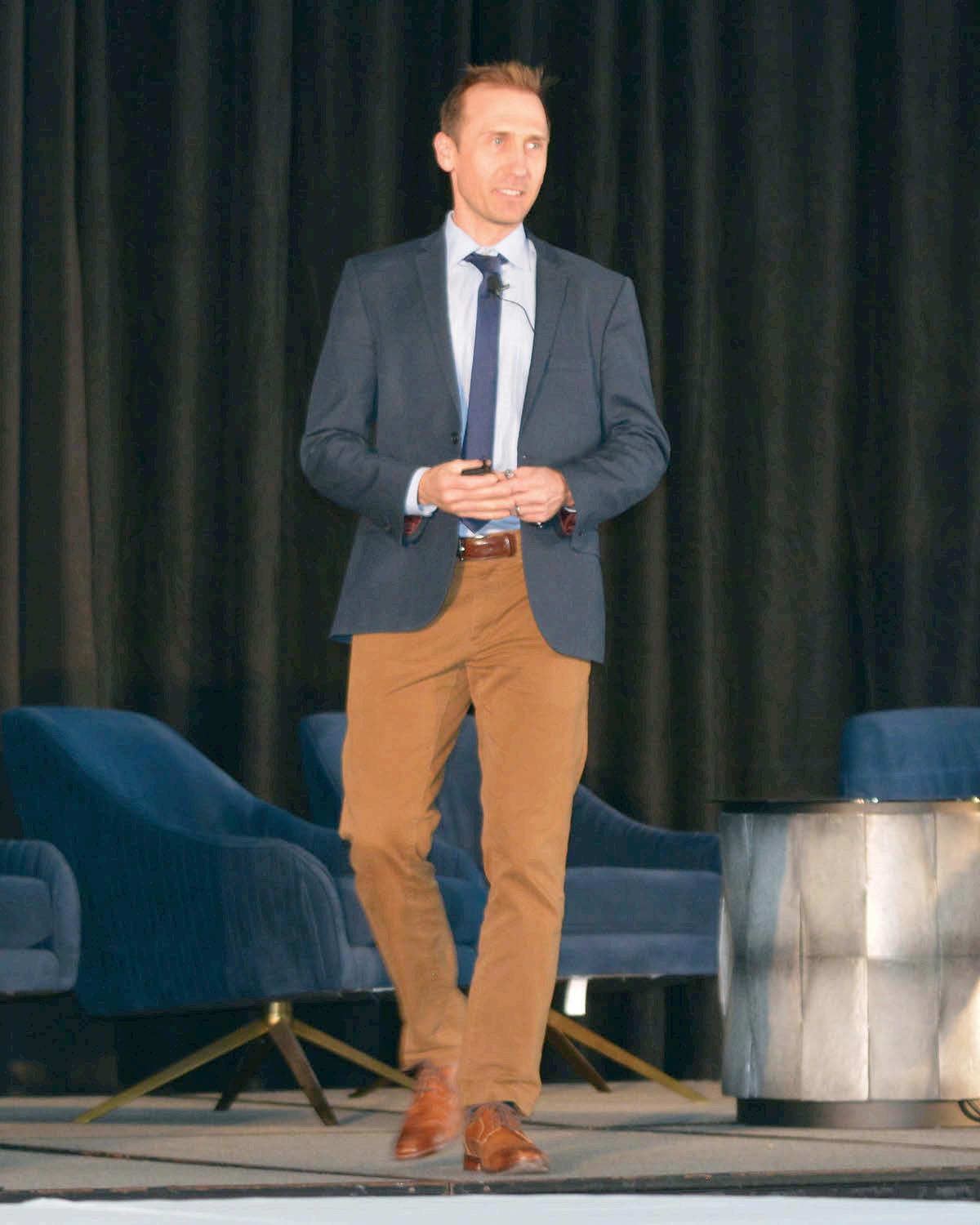
Committee Meetings Open to All
Committees help guide the direction of TPI and TLI initiatives. When these committees meet in-person during the Conference, any TPI member is welcome to attend.
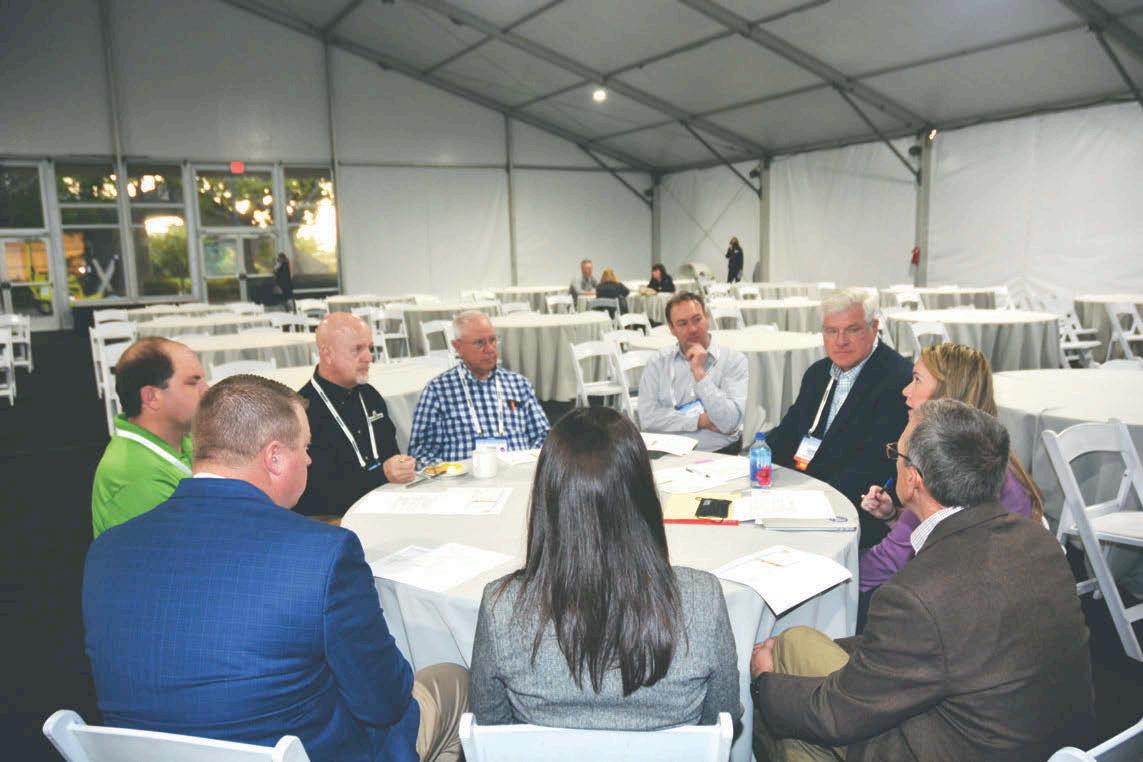
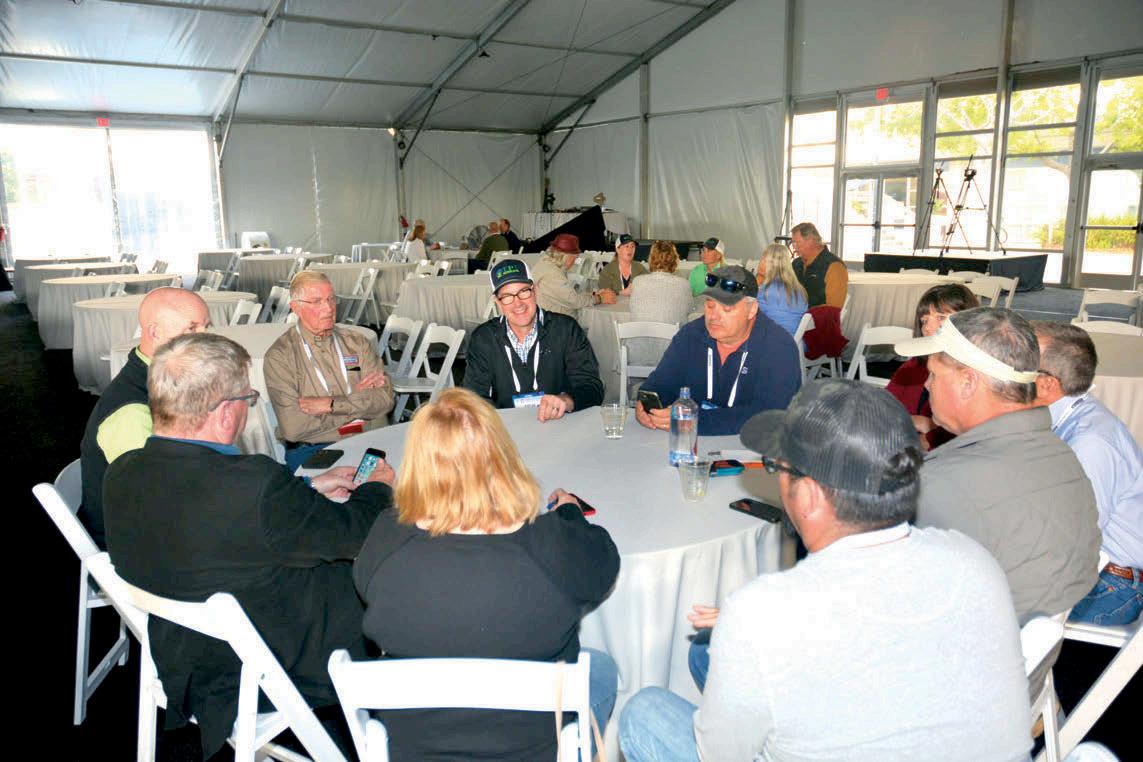
EXCELLENT EVENTS FOR NETWORKING AND FUN
Photos capture snippets of the multiple Monday on the Water experiences of the TPI Conference Day of Optional Events as attendees soak in the sun, take in stunning views—and enjoy more networking.
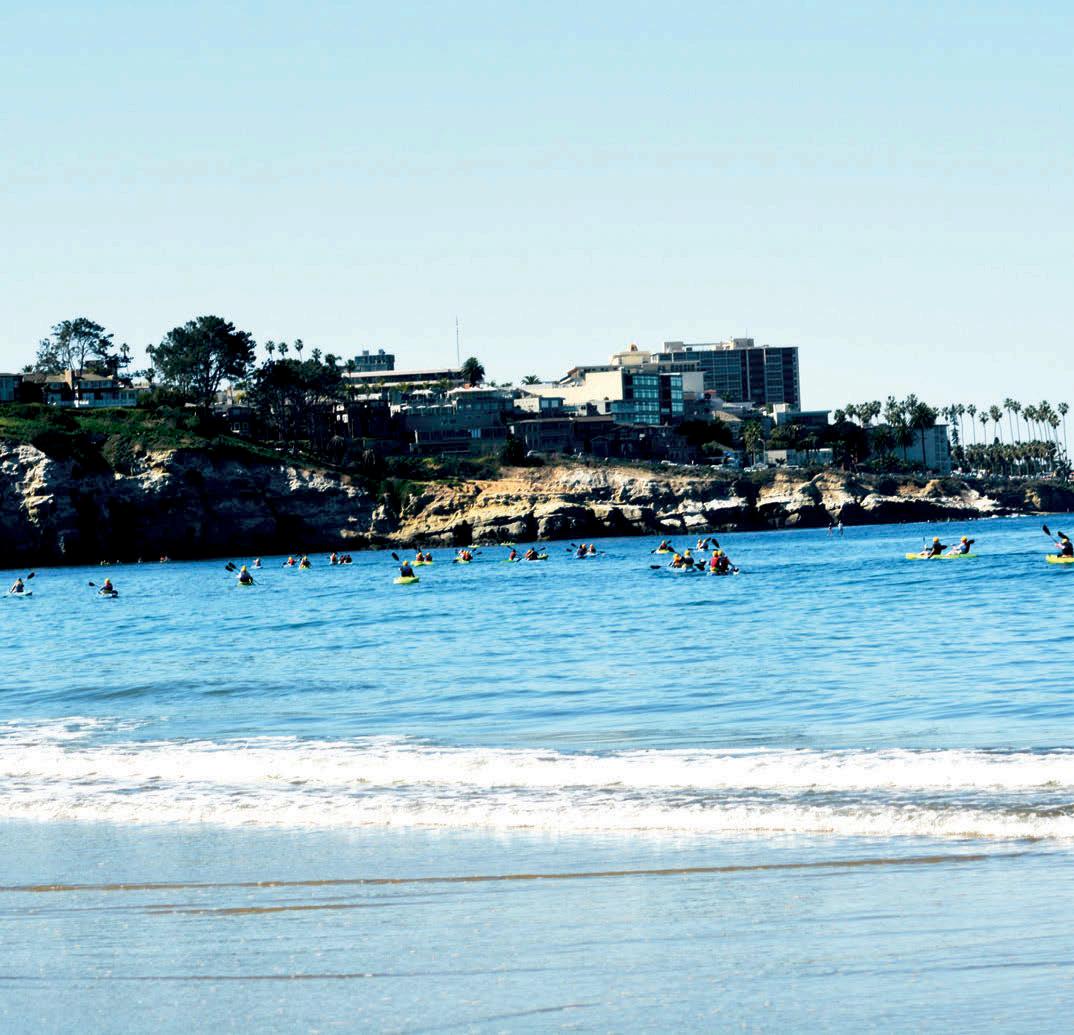
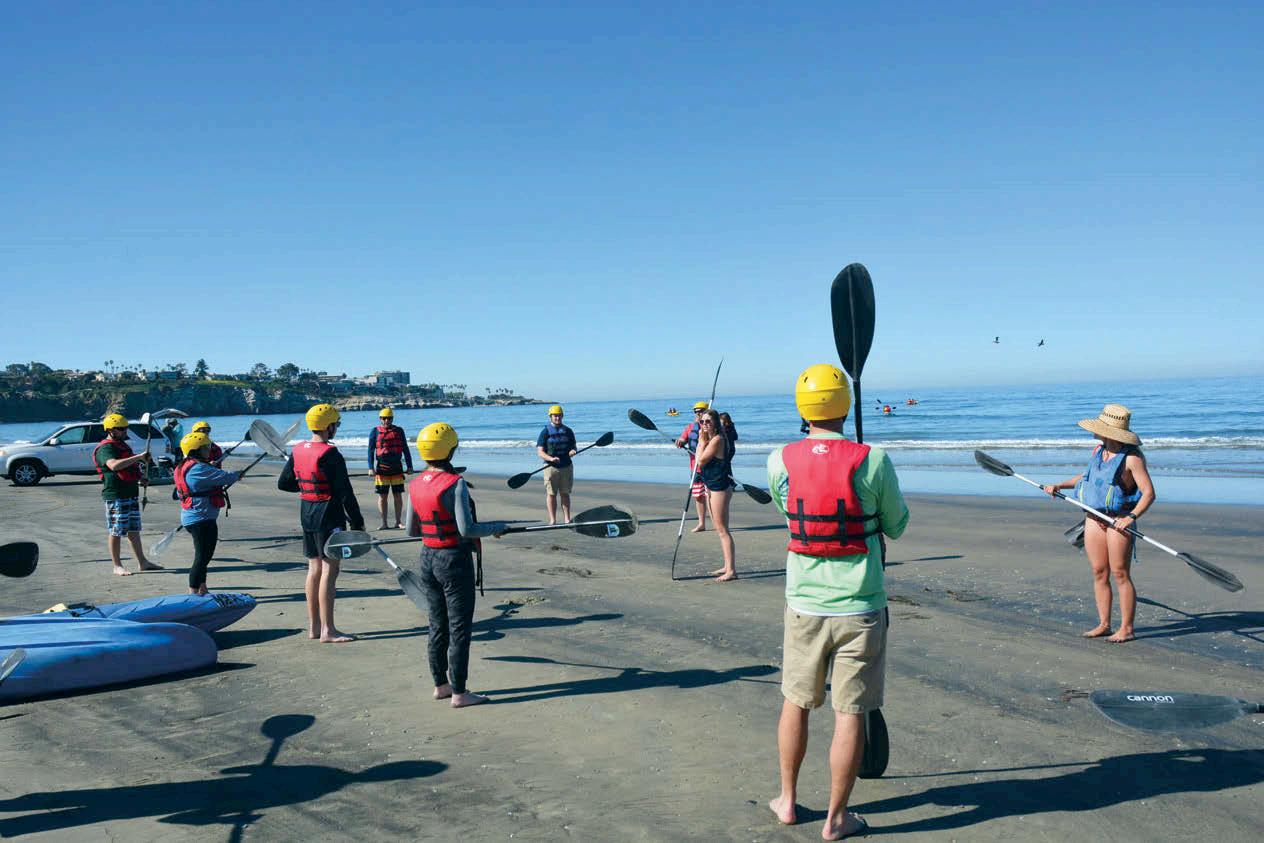
Kayaking To and Through the La Jolla Caves
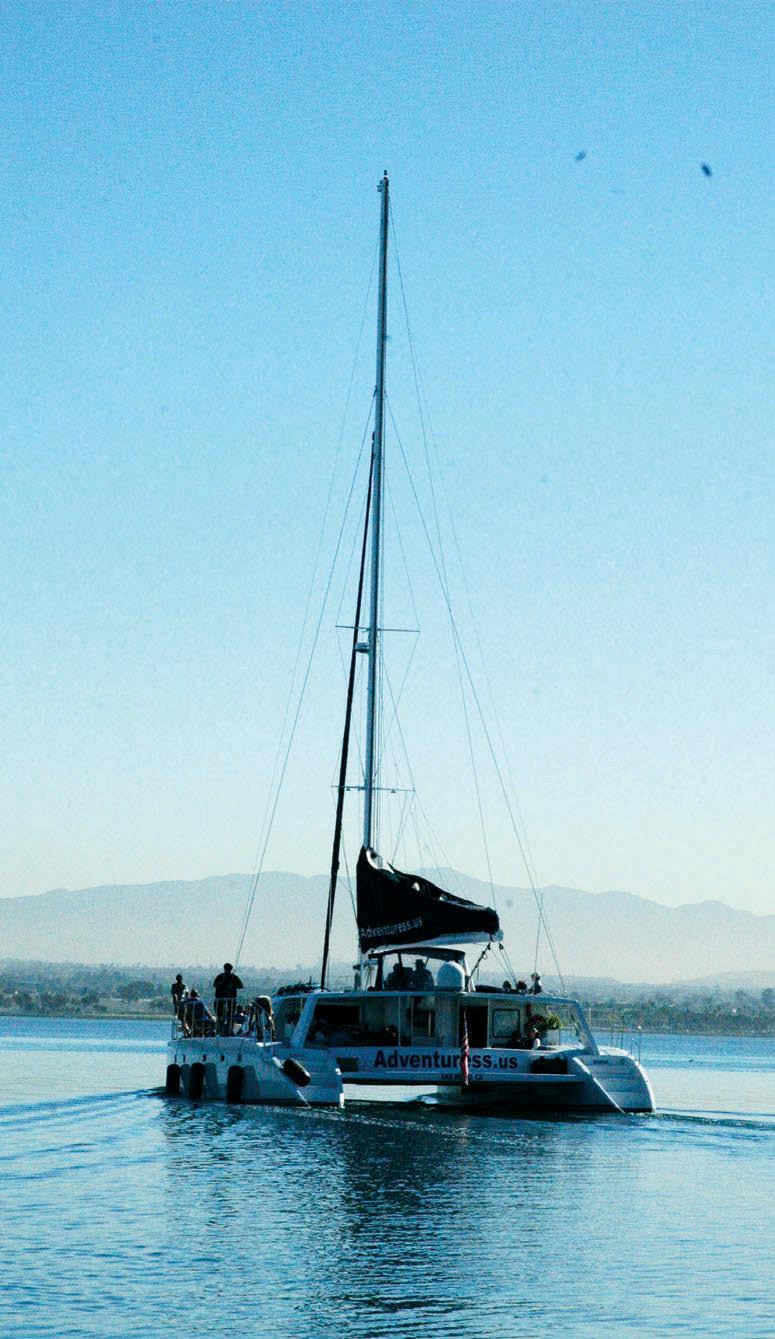
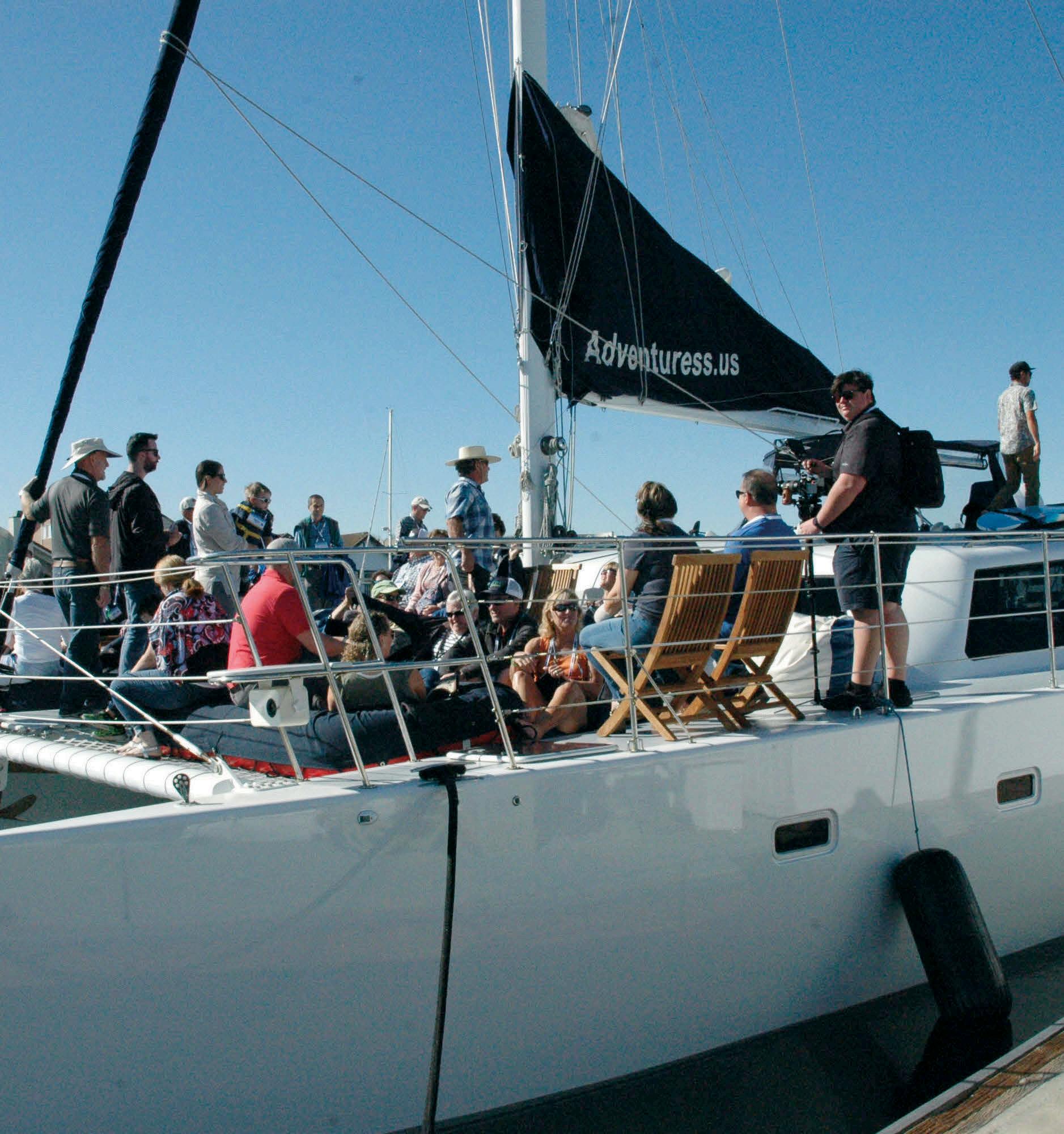

Exploring the USS Midway and Catching Some Rays while Cruising the Bay
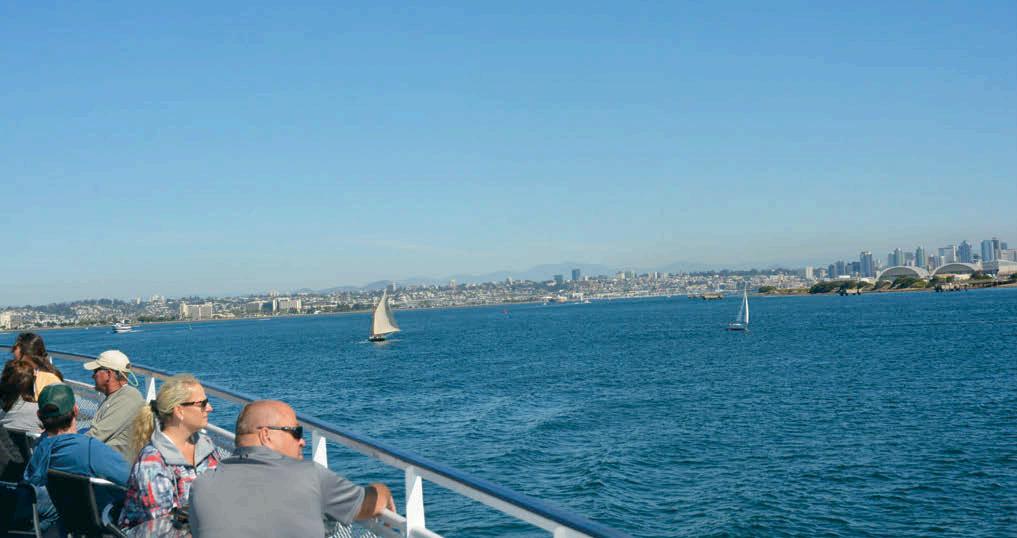
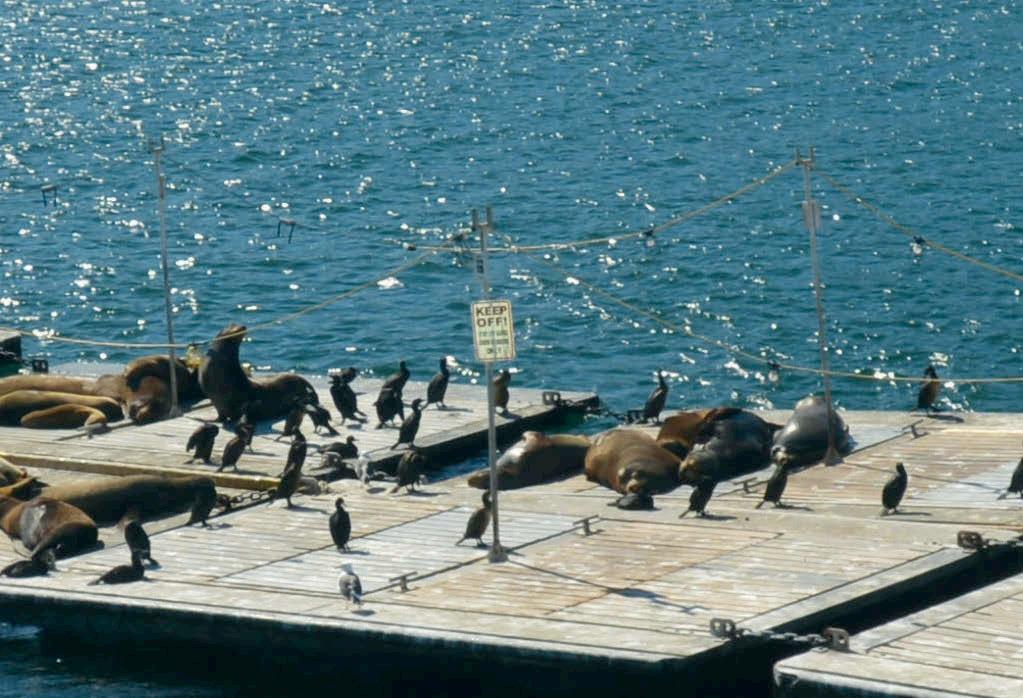
WOMEN IN TURFGRASS MEET, GREET, AND CHAT
This annual event, sponsored and coordinated by the Turf Producers Association, Barenbrug USA, and Brouwer Kesmac, provided the perfect opportunity and the perfect setting for the women of this industry to network.
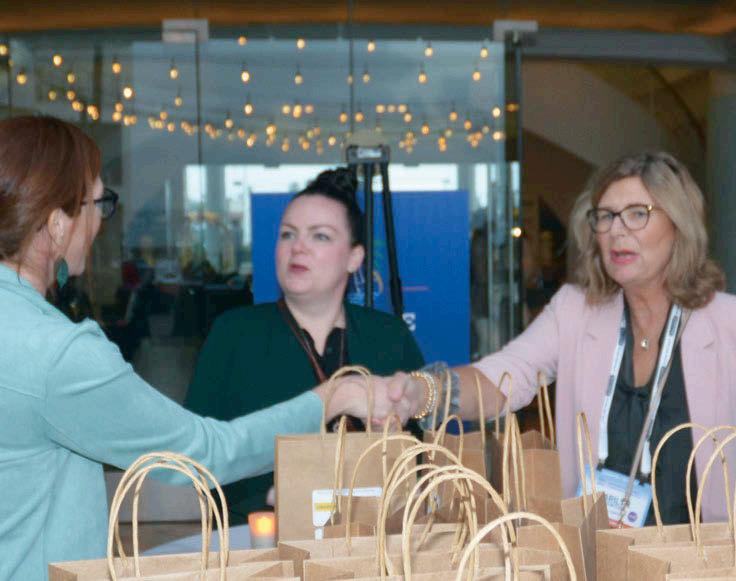
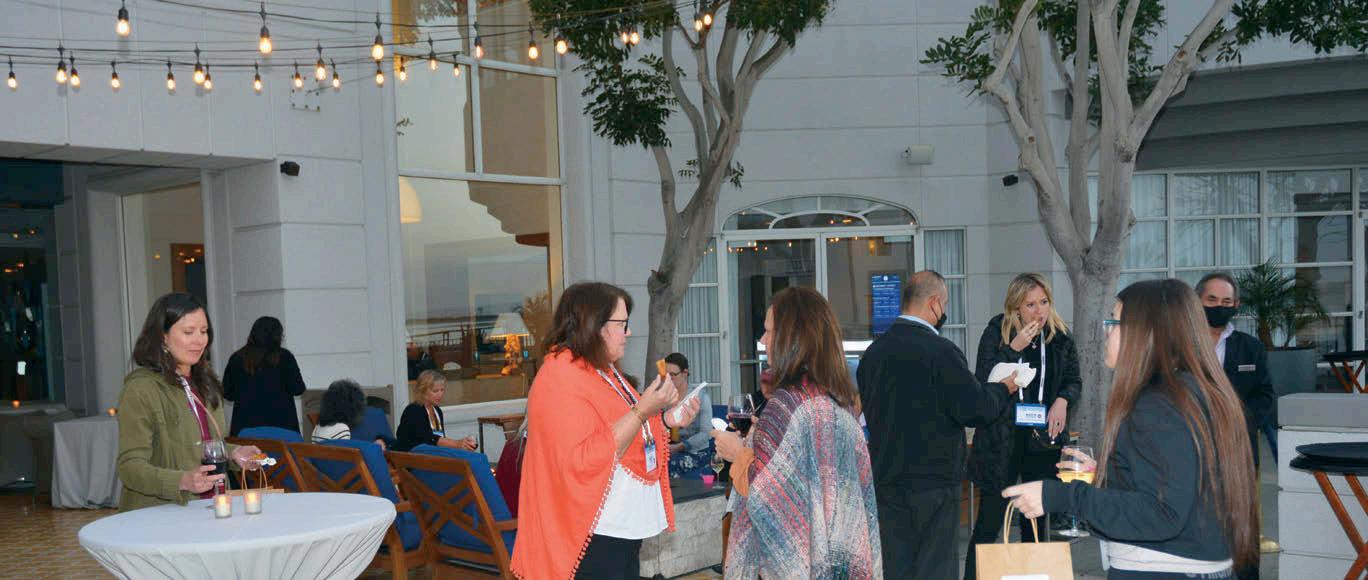

THE LAWN INSTITUTE’S FANTASTIC FUNDRAISING
On Valentine’s evening, the Marina Terrace was transformed from a simple pool deck to a family-friendly wonderland, with carving stations and a sparkling tower of desserts, along with an array of casino games. This Lawn Institute Casino Night was sponsored by Trebro Manufacturing, Inc. and Donkey Forklifts. The $100 per person contribution provided the event, $500 in fun money, the delicious food, and a drink ticket. Additional contributions were welcomed. Tickets earned at the games were deposited in “fish bowls” for each of the prizes. With doting parents and grandparents on hand, the kids were the biggest prize winners. All proceeds go to support TLI to help in funding of turfgrass research, education, scholarships, and the campaign to promote natural grass.
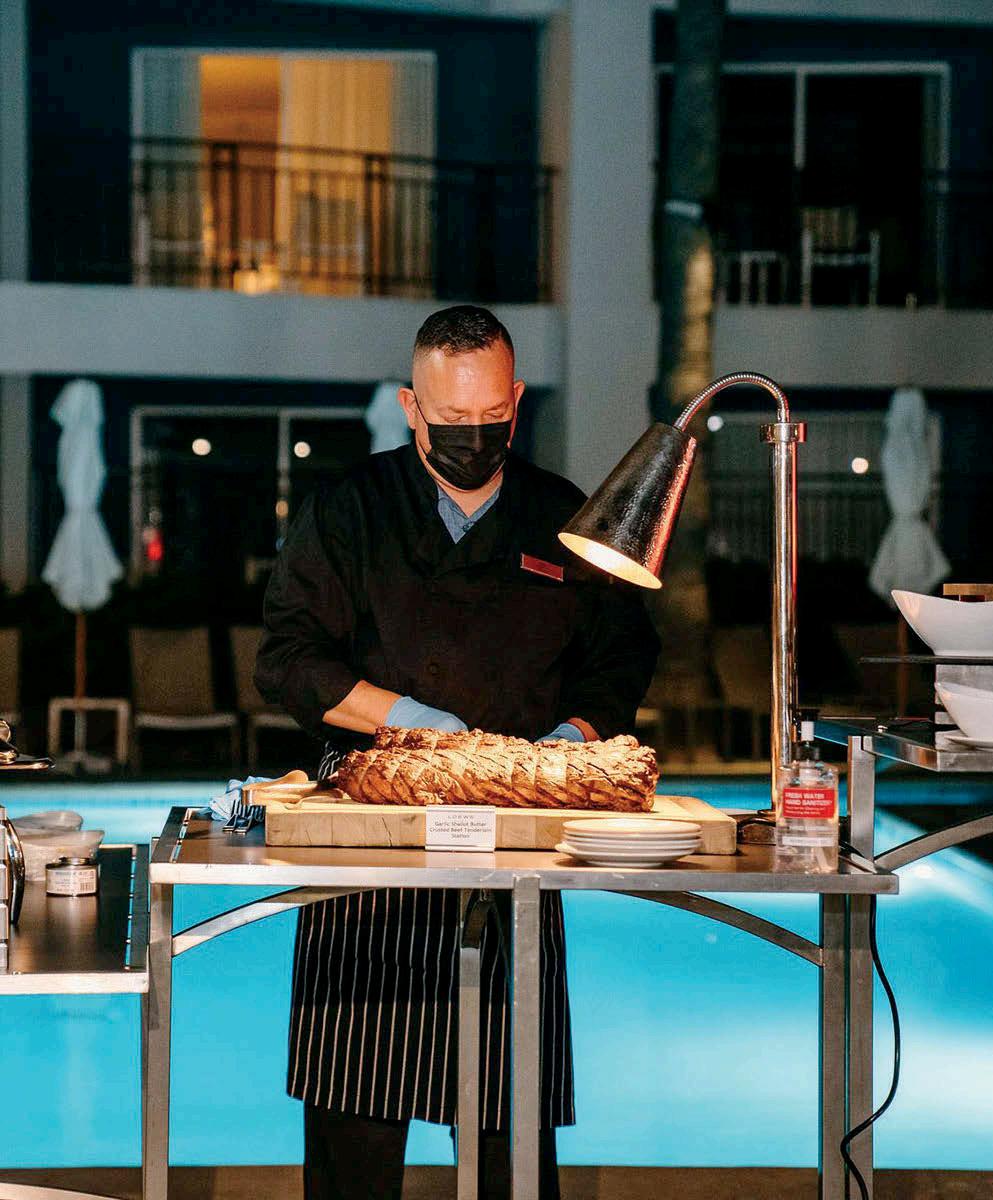
CASINO NIGHT PRIZE DONORS
(GIFTS RANGED IN VALUE FROM $100 TO $1000)
Company Prize Cameron Financial One gift card Hol-Mac (Donkey) One gift card Jonathan Green Four gift cards Landmark Seed Company One gift card Magnum One gift card Mountain View Seeds Apple Watch MVP Genetics Bose Headset
R&R Products, Inc. One gift card Sales Midwest Four gift cards SelecTurf, Inc. Bose Wireless Speaker TAMANET USA One gift card TPA (Jenny Carritt) Women’s Gift Bag Trebro Manufacturing, Inc. One gift card Turf Producers Association Two gift cards TWCA iPad Mini TPI Grand Prize $1,000 gift card
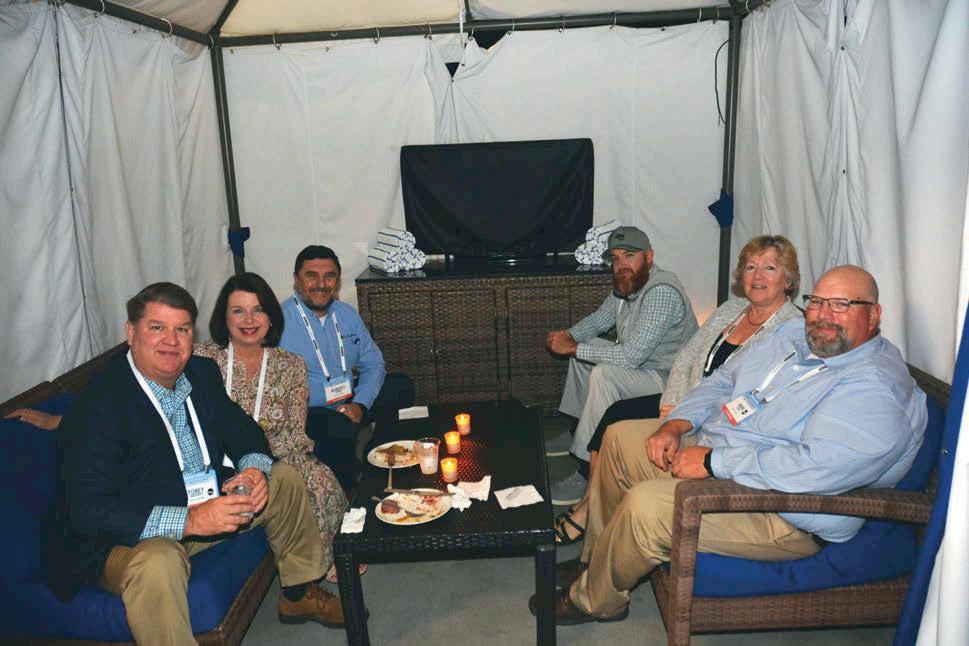
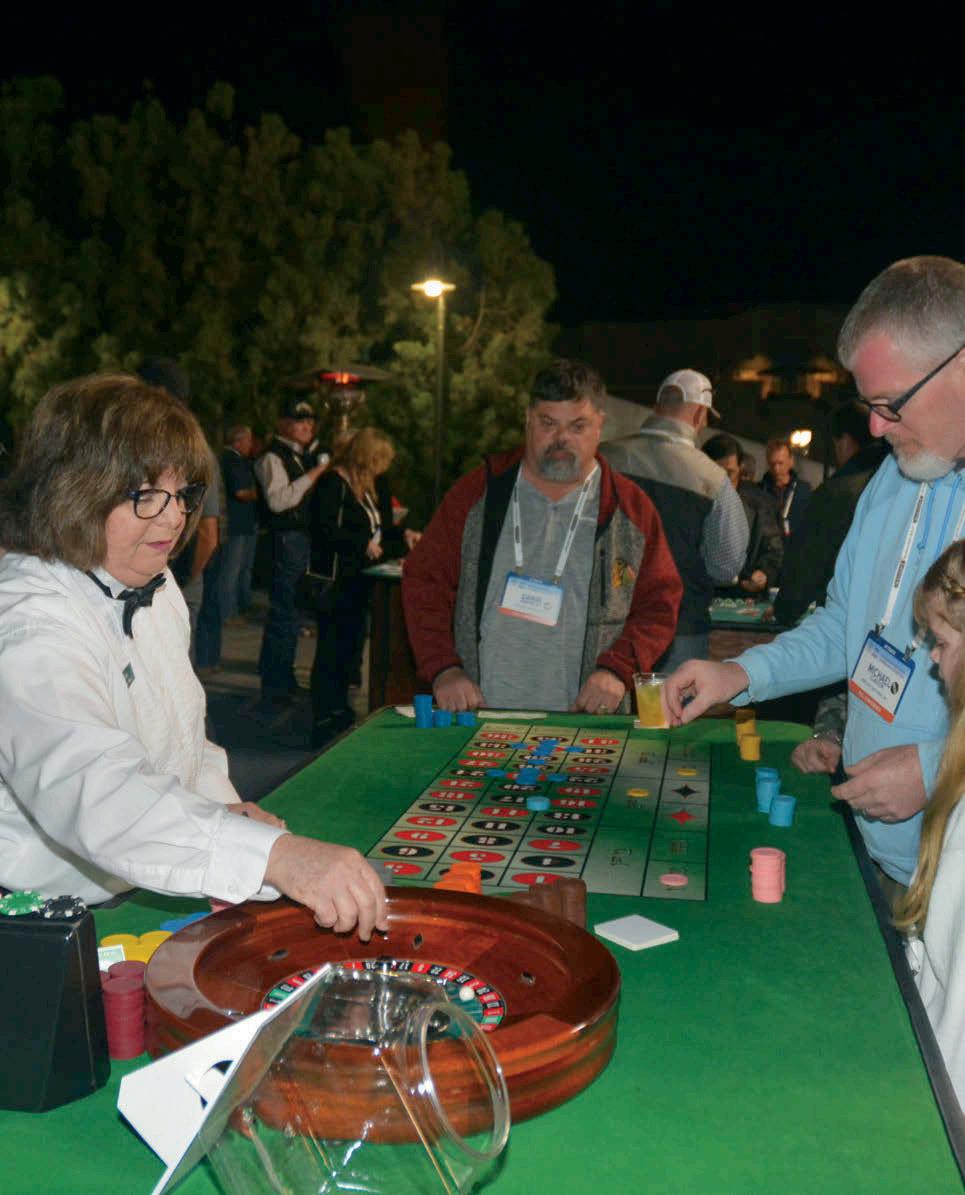
DONKEY FORKLIFT AUCTION TOPS OFF TLI FUNDRAISING
TPI Past President Eddie Keeven took on the role of auctioneer to raise even more funds for TLI. Donkey provided their latest Zero Turn Forklift for the auction, which Donkey’s Jamie Holder reported was the only one not yet sold for spring 2022. Bidding was brisk! The winning bidder was Mayfield McCraw, of Hope Plantation Farm. Pictured below, from left to right, are Eddie Keeven, Jamie Holder, and Mayfield McCraw.
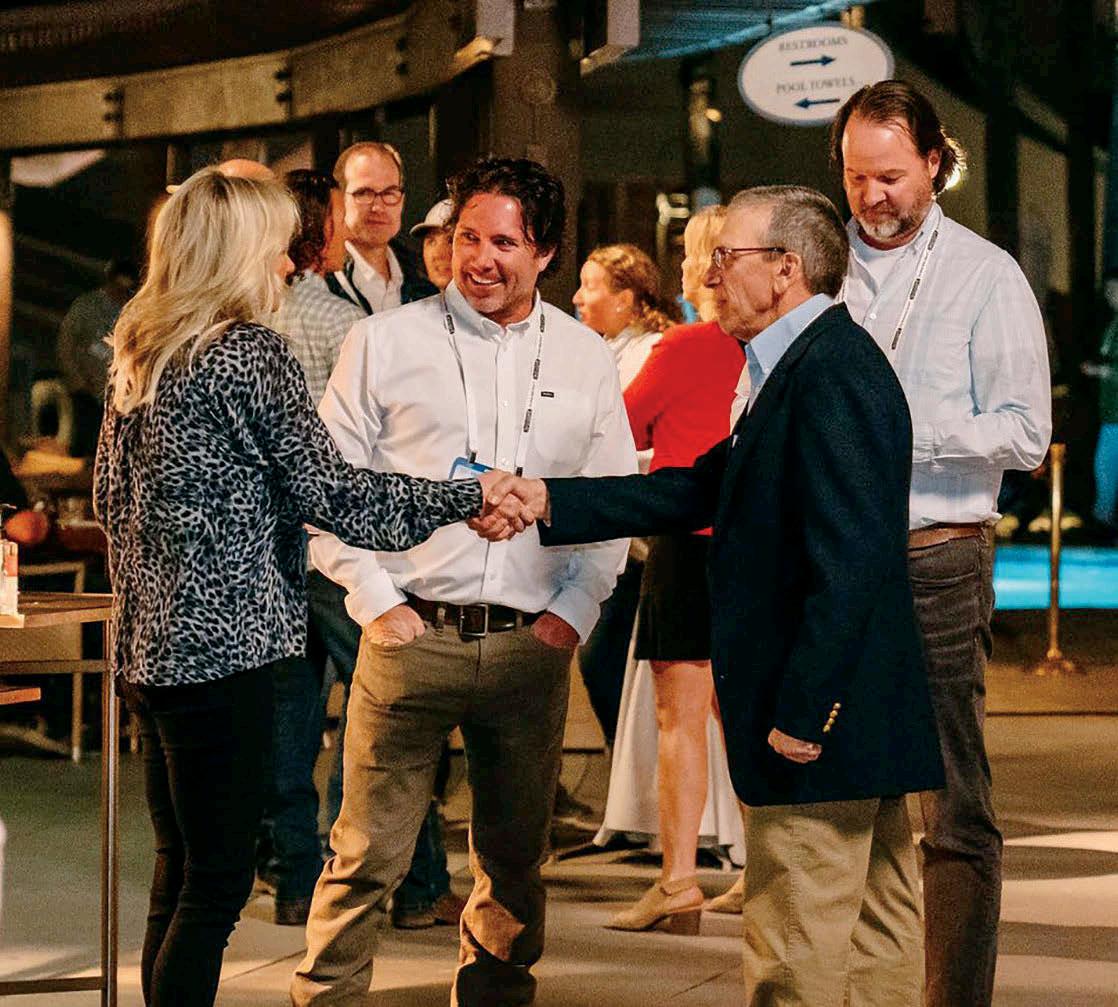
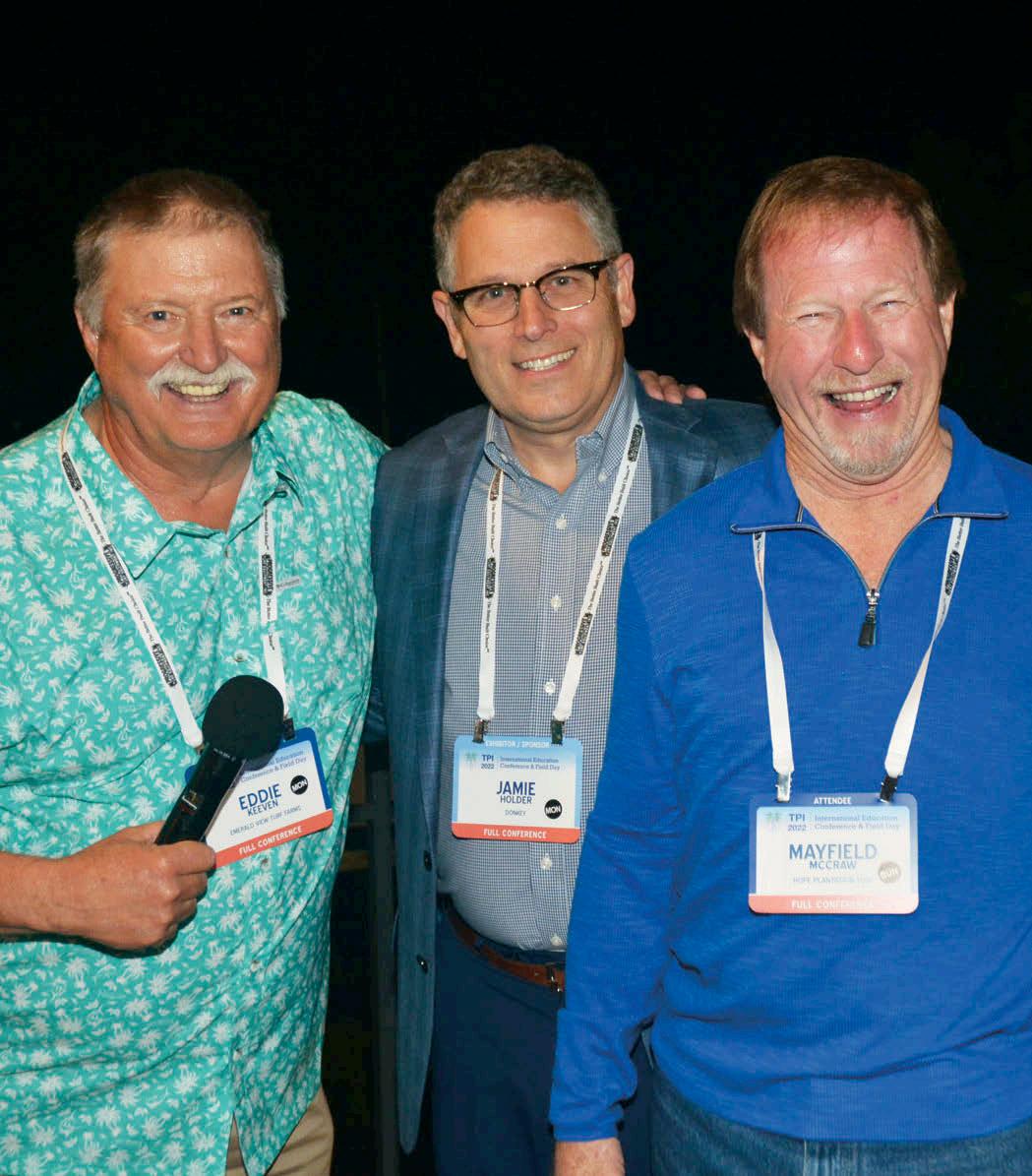
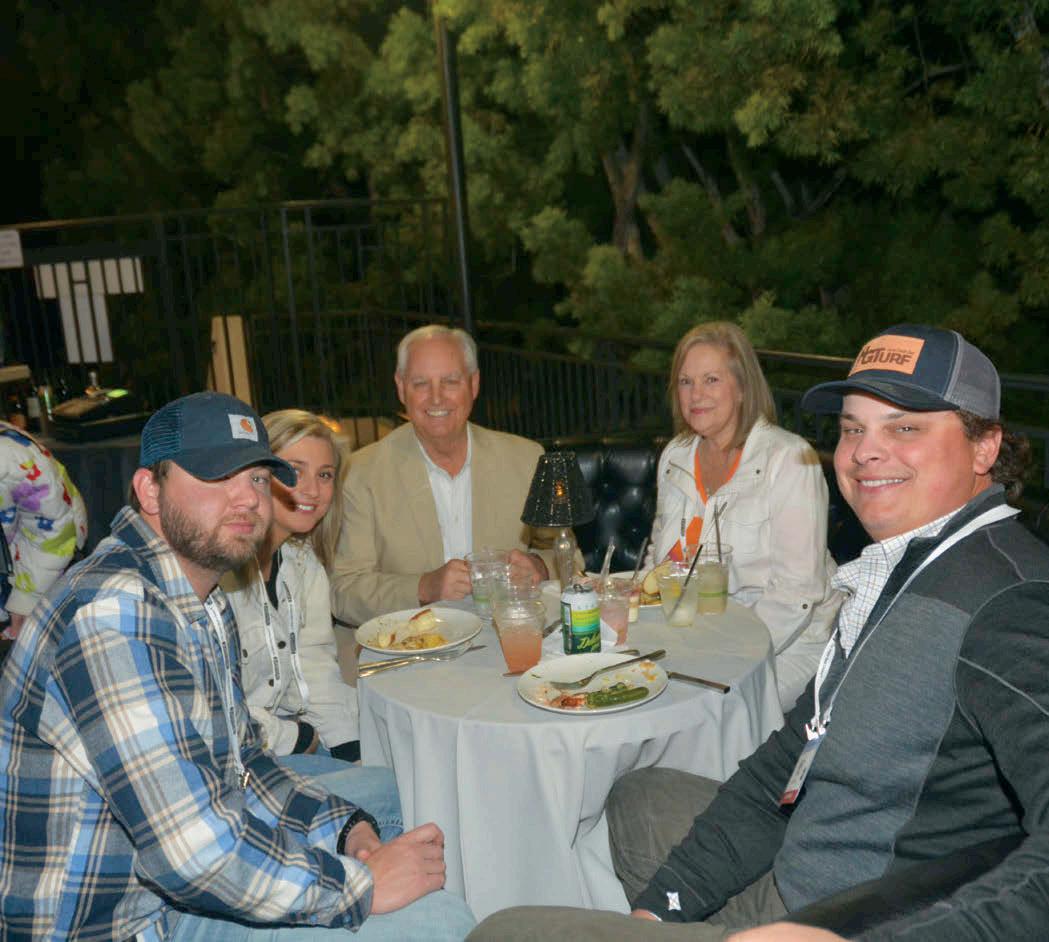
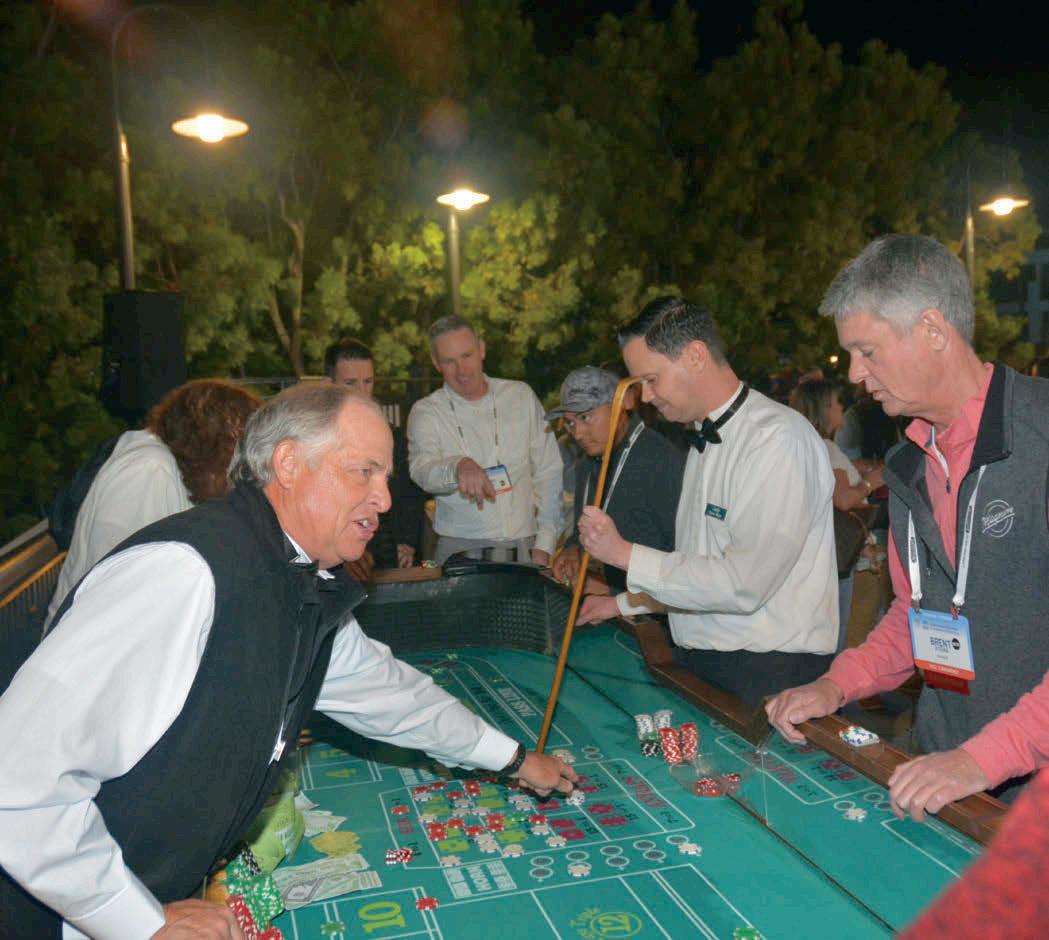
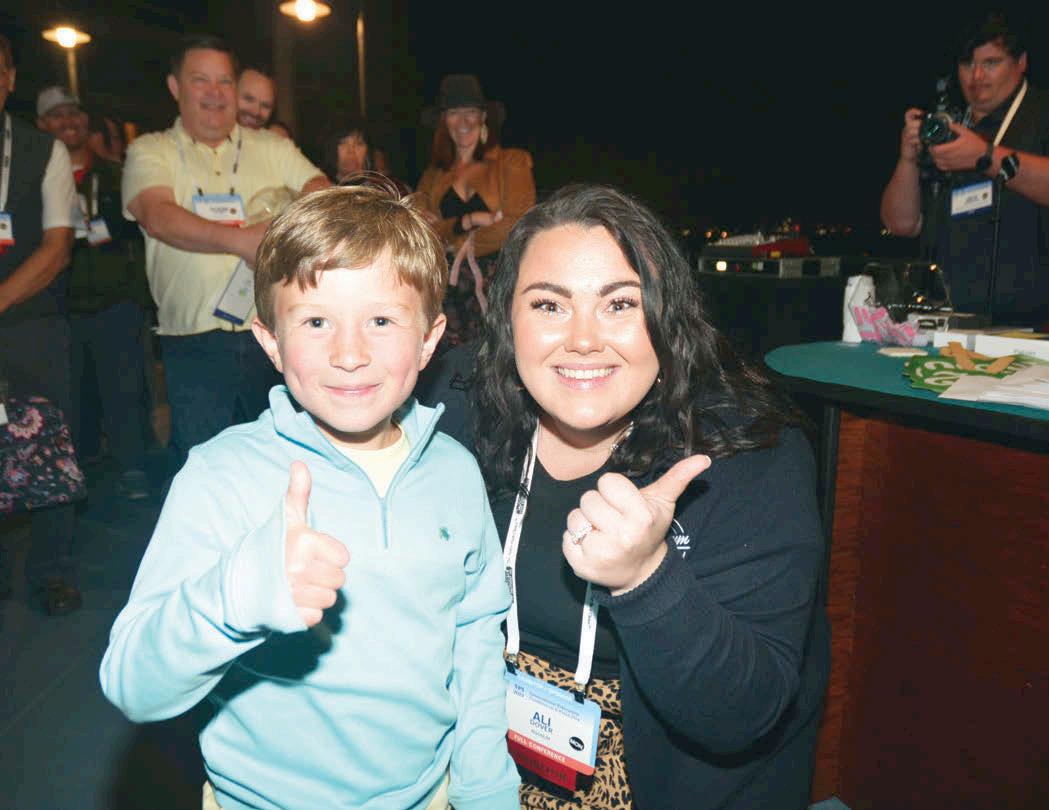
EXHIBIT HALL SHOWCASES SUPPLIERS
A tremendous crowd headed to the Exhibit Hall on “Taco Tuesday” evening and again on Thursday afternoon eager to visit with the exhibitors and event sponsors that filled the room. On display were the latest and greatest in products for turfgrass sod production. The exhibitors had multiple staff members on hand, ready and able to answer questions and interact with the sod producer representatives. They had excellent opportunities to do so as individuals and small groups gathered at the displays. Connections were made; products were sold. Tuesday’s Tacos and Thursday’s lunch were served in the Exhibit Hall with serving stations strategically placed throughout the hall giving potential buyers even more incentive to view all the offerings. The Taco Tuesday drink ticket for each attendee was sponsored by Magnum. TPI is fortunate to have so many supportive vendors and sponsors to make our events possible!
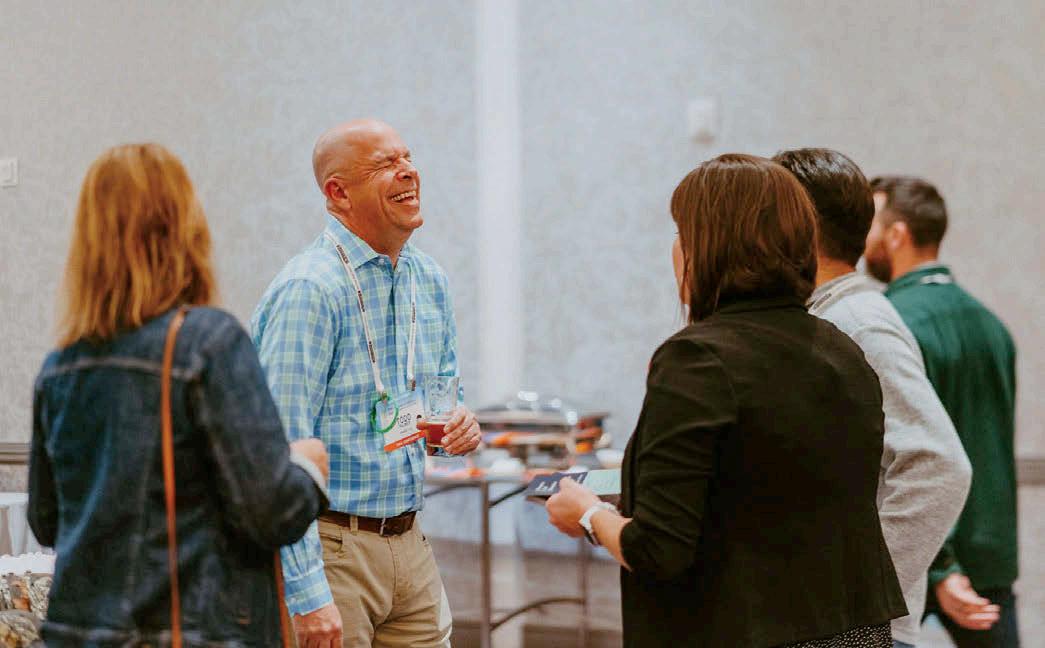
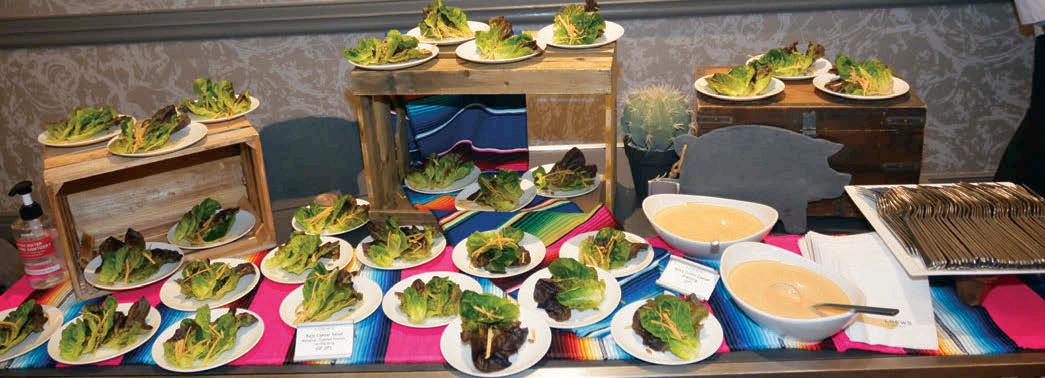
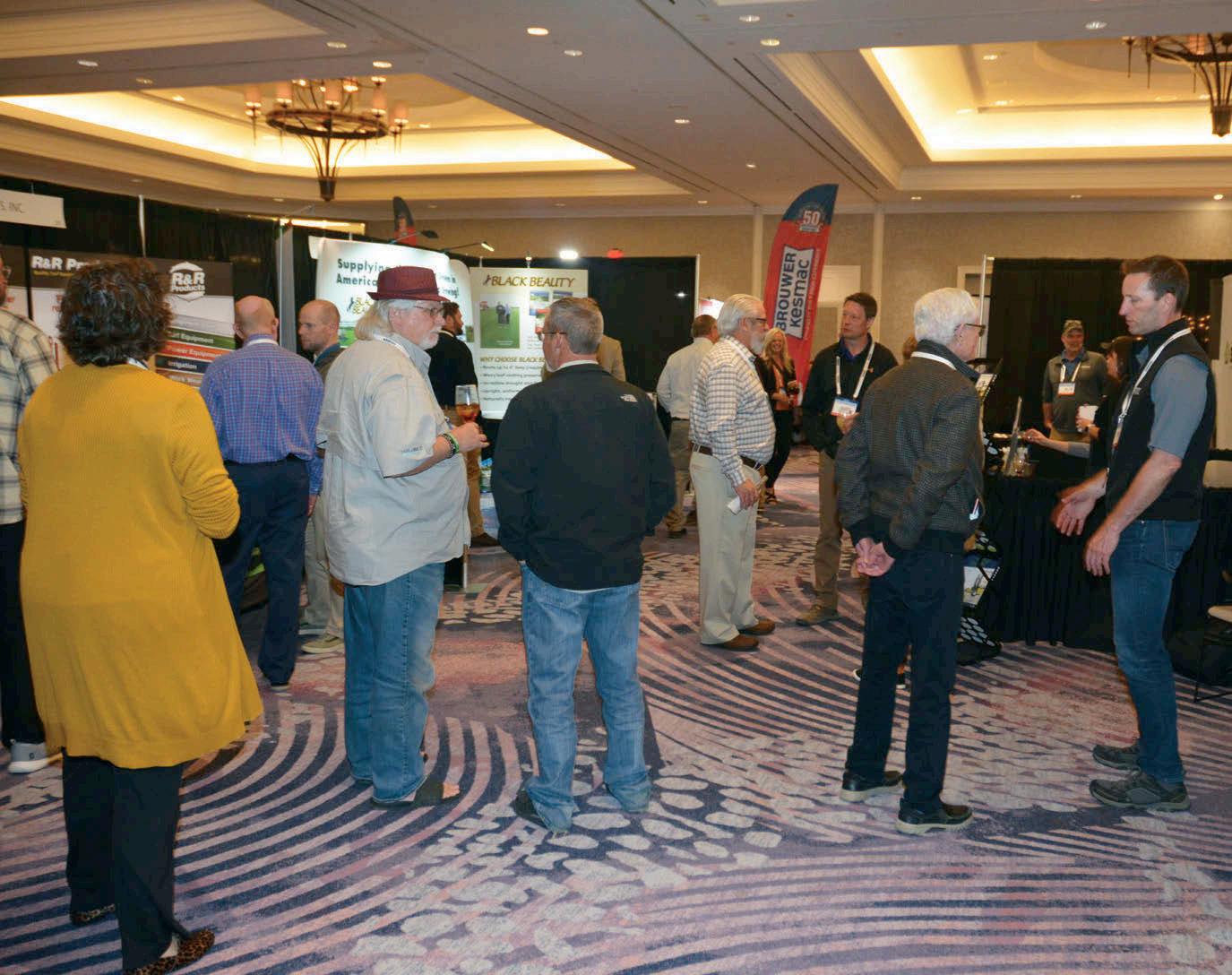
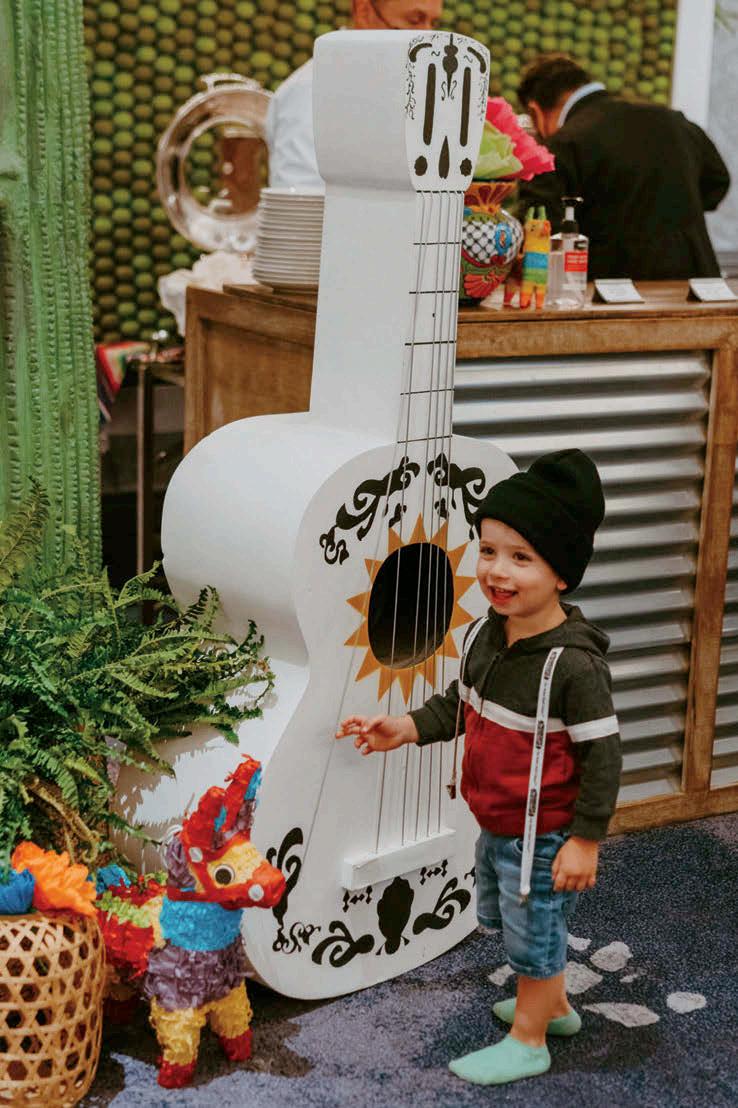

FIELD DAY EXHIBITS AND DEMONSTRATIONS DRAW CROWDS
The Field Day setting was beautiful, nestled in the San Pasqual Valley Agricultural Preserve near Escondido, and the neighbors were wild—the inhabitants of the San Diego Zoo Safari Park. The weather cooperated, gradually warming with a return of sunshine, following the uncharacteristic rain of the day before. The American Sod Farms partners JR Wirthlin, Jeff Nettleton, and Jimmy Fox, and their entire team had their farm in top shape and ready to host the crowd. The event was sponsored by Brouwer Kesmac. Bus transportation was sponsored by Sod Solutions Attendees always love Field Day! There’s so much to check out, with exhibitors spread throughout the field and ample space for equipment demonstrations that show the newest and greatest machines in action. And 2022 brought a new twist—attendees could try lunch options from any of the five food trucks parked around the field, snack on popcorn, pick up a frozen treat sponsored by TAMANET, and enjoy refreshments from the Tap Truck. TPI President Jim Keeven extended TPI’s gratitude to the American Sod Farms team and extended appreciation for the sponsors and exhibitors who consistently show their support to the association and its activities.
2022 EXHIBITORS
A-LIST
Advanced Equipment Sales Aqua-Aid Solutions Barenbrug USA BigYellowBag Brouwer Kesmac
DLF
Donkey Forklifts Draslovka Services
E-Cargo Tarps Farmington Equipment FireFly Automatix Hiab USA
Jonathan Green & Sons, Inc. Landmark Seed Company Magnum Mountain View Seeds Nature’s Choice
Northwest Tillers
Pennington Seed Prime Source
Pure Seed
R&R Products, Inc. Sales Midwest
SiteOne Landscape Supply Sod Production Services
Sod Solutions
TAMANET (USA) The Turfgrass Group Trebro Manufacturing, Inc. Turf Merchants, Inc. Turf Producers Association
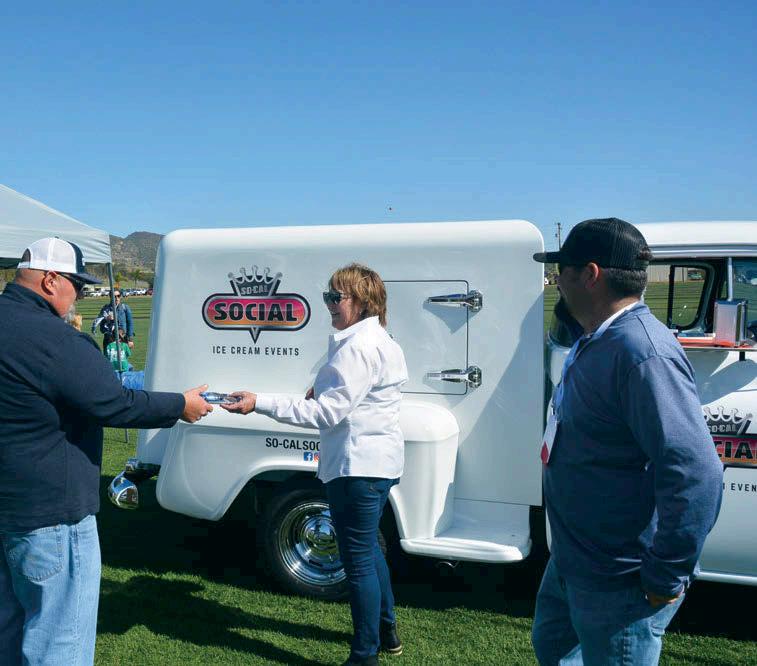
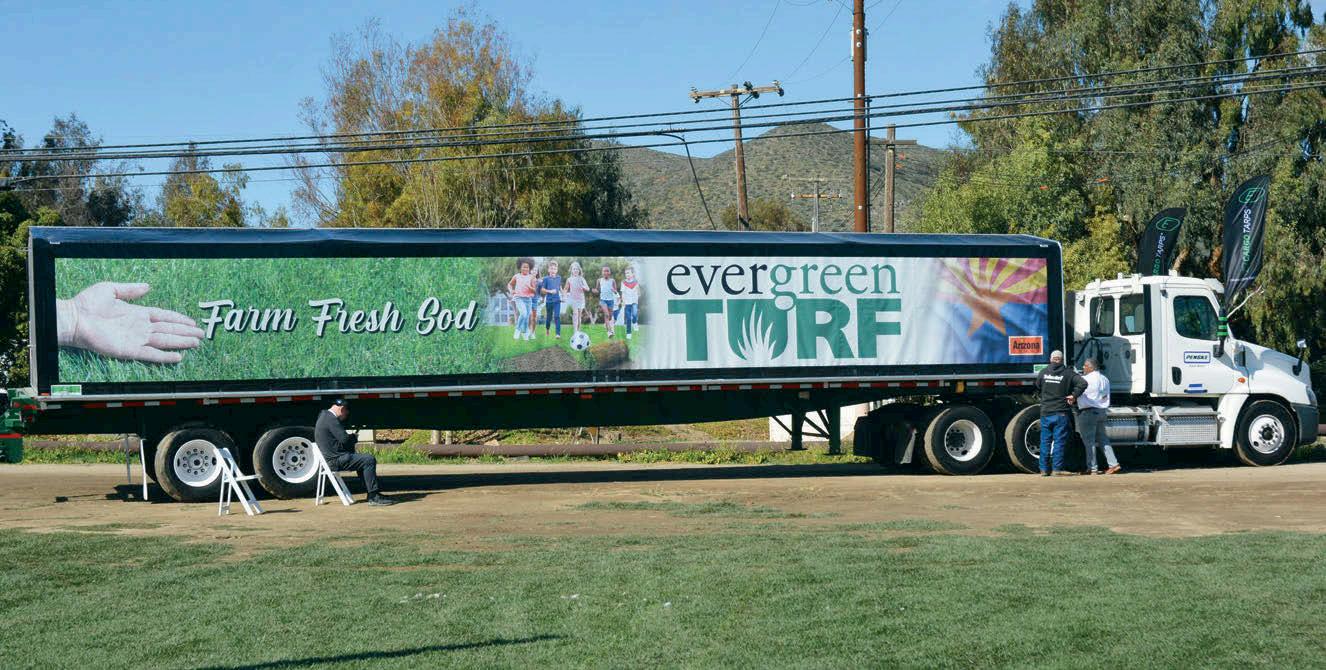
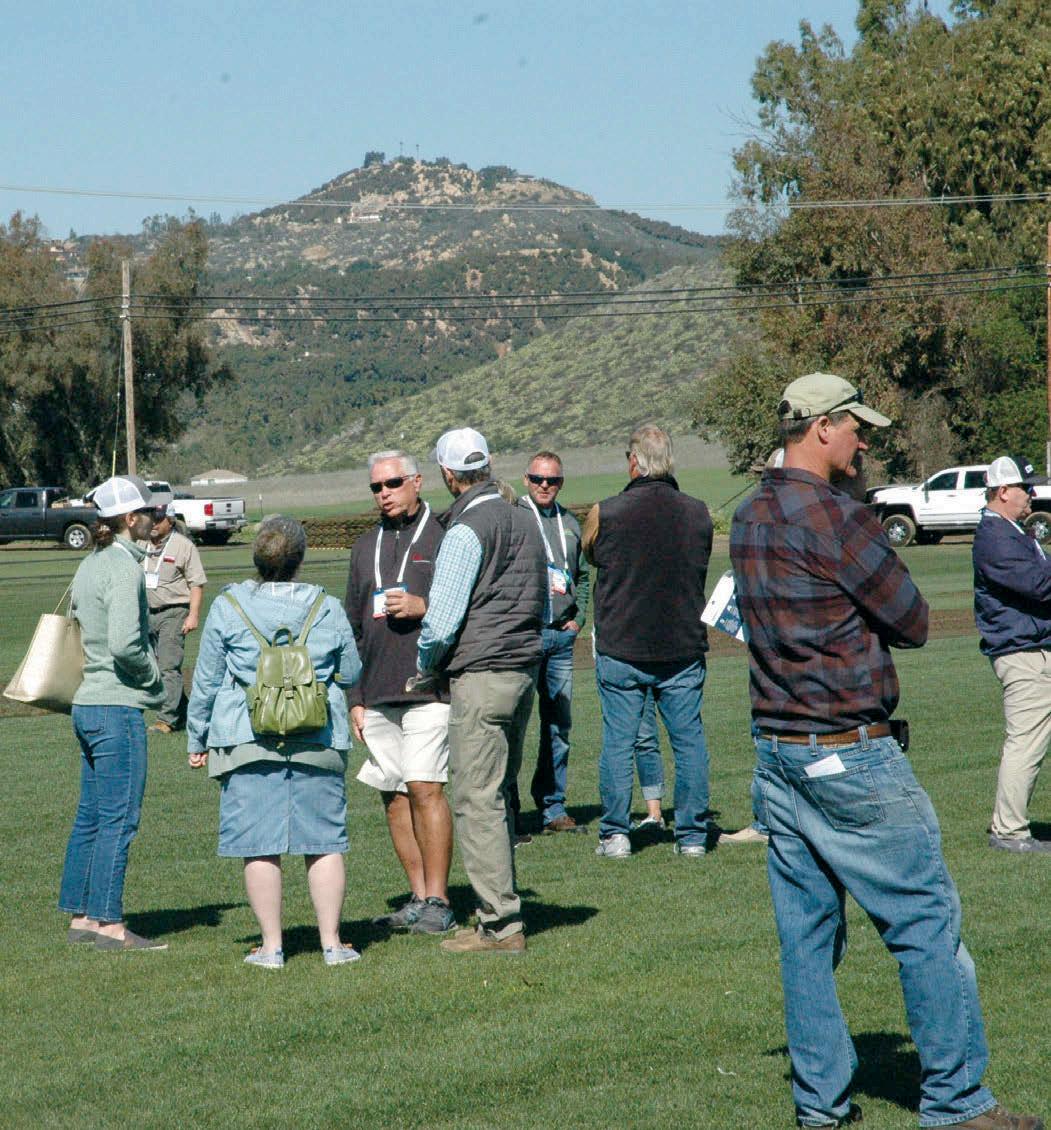
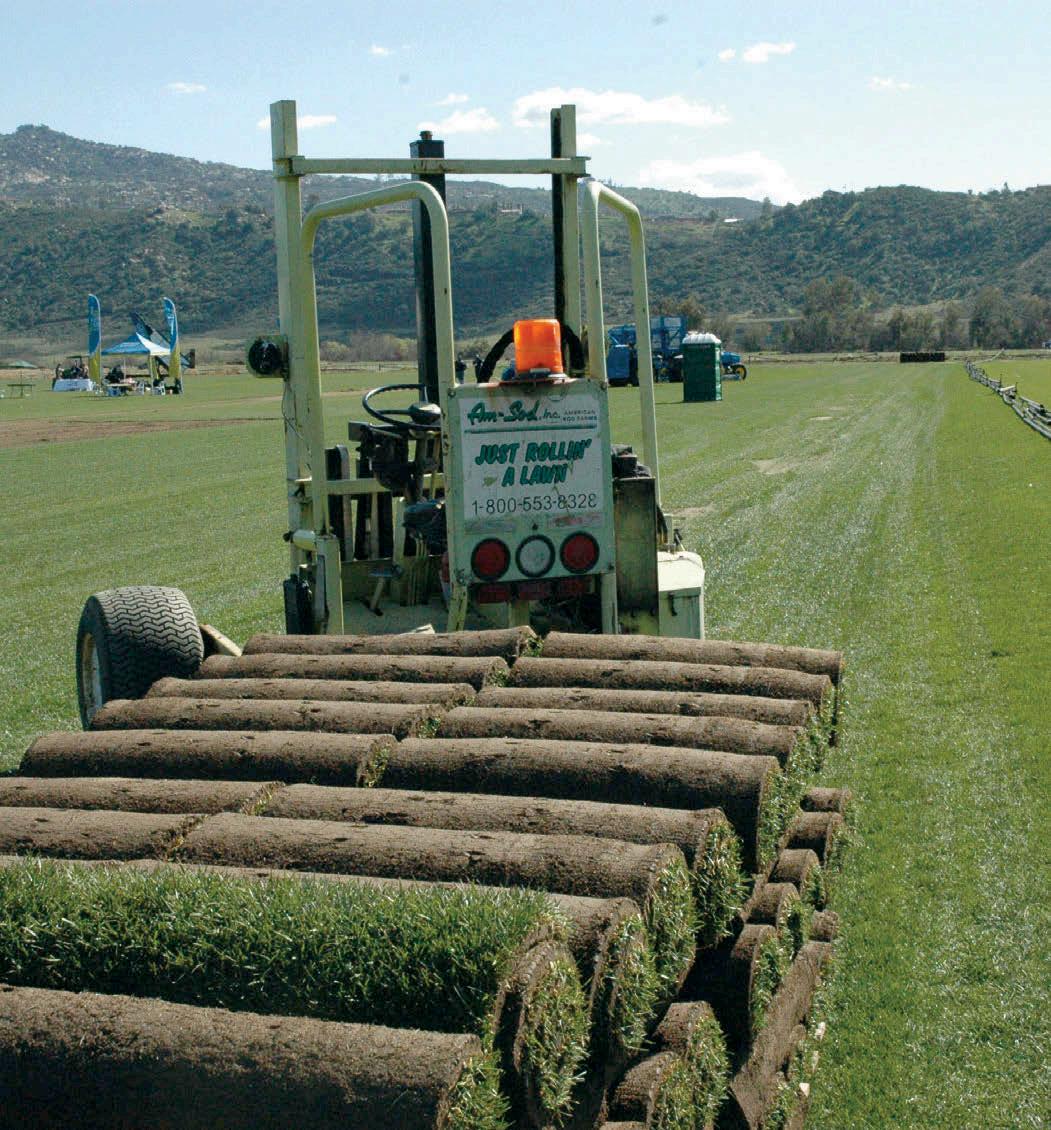
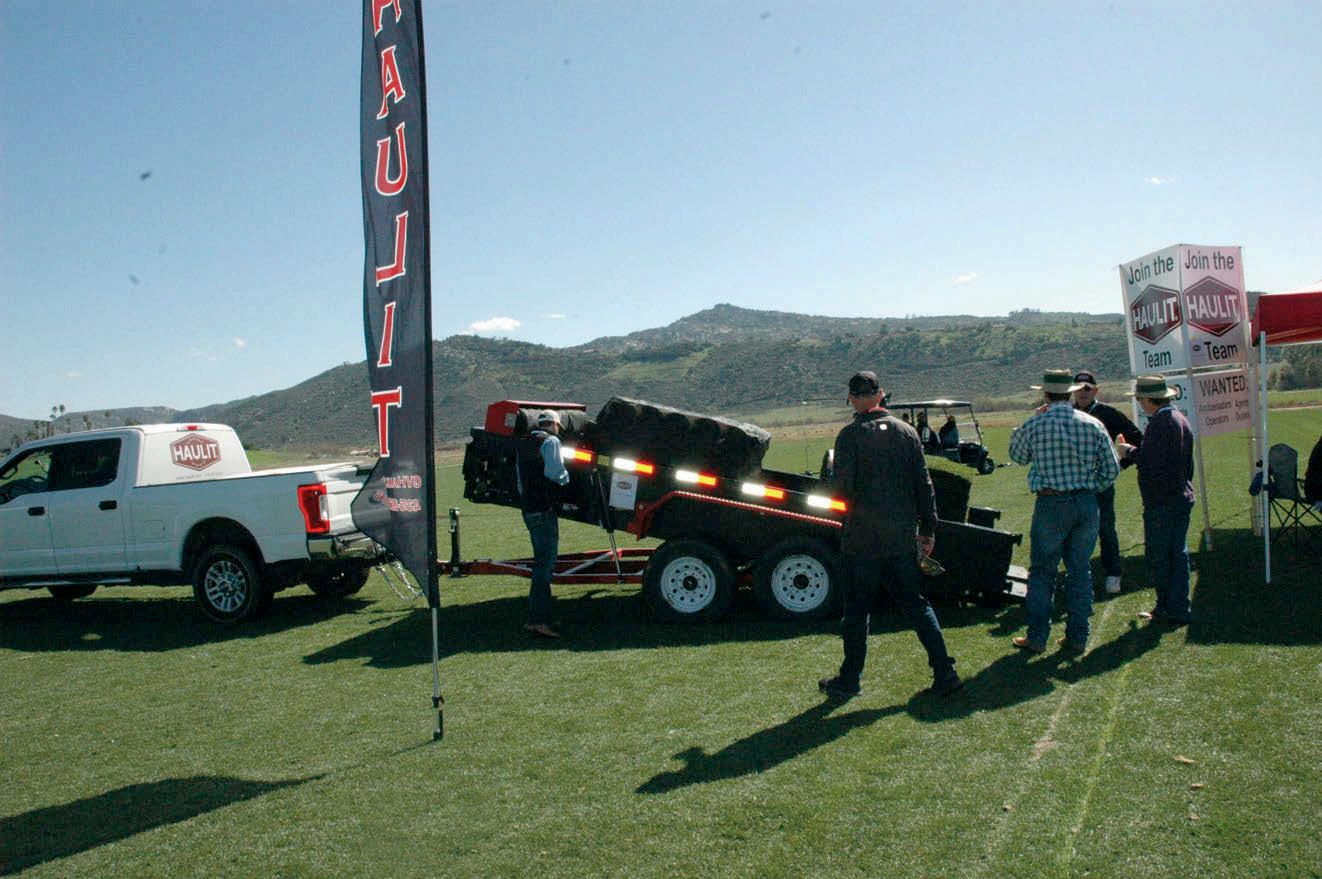
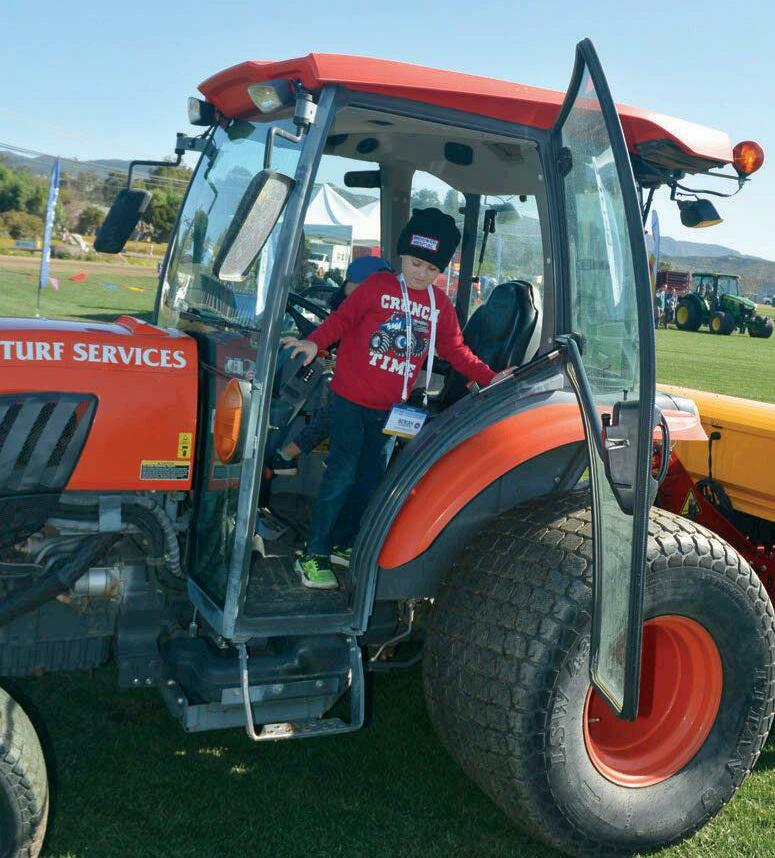
BRUCE VINCENT KEYNOTE—
WITH VISION THERE IS HOPE
With his solid foundation of reality and passion for the environment and preserving rural America—to save the last best places and the last best people— Bruce Vincent drew a standing ovation from attendees of TPI’s 2022 International Education Conference & Field Day. His keynote presentation, With Vision There is Hope, opened the education sessions held in San Diego, California, February 14-17. Vincent is a third-generation logger from Libby, Montana, and coowner of the community outreach firm Environomics. His recently completed book, Against the Odds: A Path Forward for Rural America, highlights his life journey.
Vincent began his presentation explaining that growing up in a logging family is much like growing up in a sod farming family, but there’s a divergence between our logging ag and yours—it takes us 100 years to know if we screwed up. He detailed the history of U.S. forestry, with the early timber barons moving across the continent from the east coast to the west, practicing cut and run. Then, they determined if they wanted to keep forestry, they would need a continuous supply of trees and started planting six trees for every one cut. Though it was a novel concept at that time, it was rooted in reality—if we took care of the world, it would take care of us.
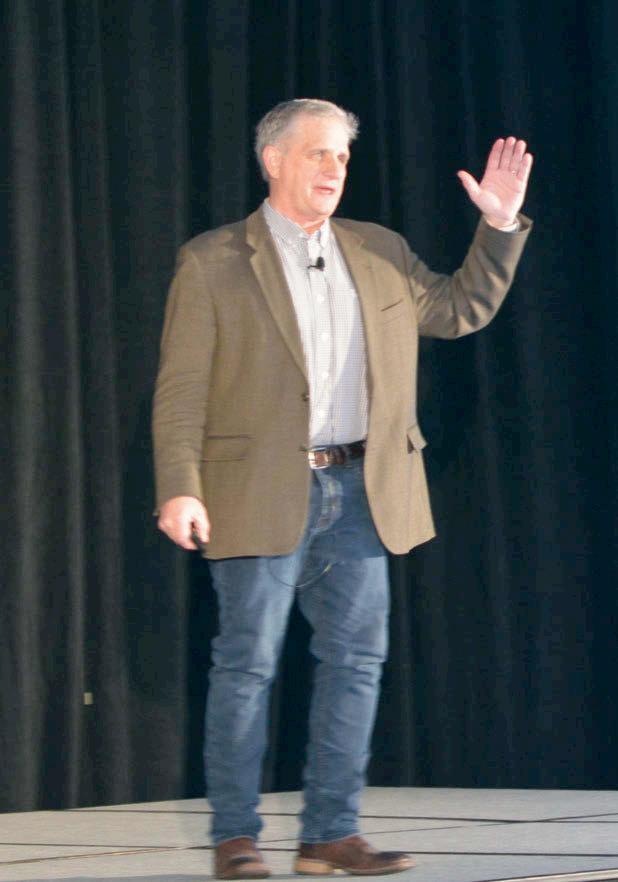
Identified by the school system and his parents as “too smart to be a logger,” and given the “your talents would be better applied elsewhere,” talk by his Dad, Vincent earned his bachelor’s degree in civil engineering and his master’s in business. (To learn more about how this concept impacts the turfgrass sod industry and how to counteract it. see the protecting your investments focus article by Diane Mischel on page 10.) Vincent met and married his wife, moved into the city to enter the corporate world, and started his family. In February of 1984, he and his wife made a quality-of-life decision. They moved back to Montana, and he joined the family business, which by then had grown to 65 employees.
He soon realized that topping the list of challenges facing the logging industry was the collision of visions—public policy is not based on your reality; it’s based on the public perceptions of your reality. Vincent’s presentation went on to address that collision of visions, identify key factors that contribute to it, and provide an action plan to counteract it by telling the reality of the industry’s story via multiple avenues to not only impact the publics’ perceptions, but also to inspire them to embrace the truth of the message. And he shared how the same strategies can—and should be—adopted by the turfgrass sod production industry in facing very similar challenges. Vincent delivered many excellent, relevant points, and just a few of them are highlighted below. If you missed his presentation, or if you want to see it again, view it on TPI TV.
Lessons from Logging for Sod Growers
The Eco-Conflict Industry has hijacked the environmental social movement, marketing crisis and fear to scare the public for its industry’s financial reward.
We initially used “reverse jeopardy, screaming at Americans what we wanted them to know about us. But we weren’t asking them what they wanted to know. Every day is earth day for a farmer, but the public does not know this. We finally learned the real enemy is ignorance—the public’s and more importantly, OURS. Our message needs to be built on truth and transparency to build trust.
Listen to identify the publics’ questions and concerns to create solutions that address them. Communicate effectively. Packaging our truth is often as important as the content of our truth because of the conclusions humans draw. Democracy works, but it’s not a spectator sport. The world is run by those who show up. We need to have a voice at every table.
Have hope. Society is tired of hearing what’s wrong and more ready now for a constructive discussion. Be a ripple and together we will make a wave that will save the last best places and the last best people. ple st

AMERICA’S PUMPKIN QUEEN, SARAH FREY,
SHARES HER STORY
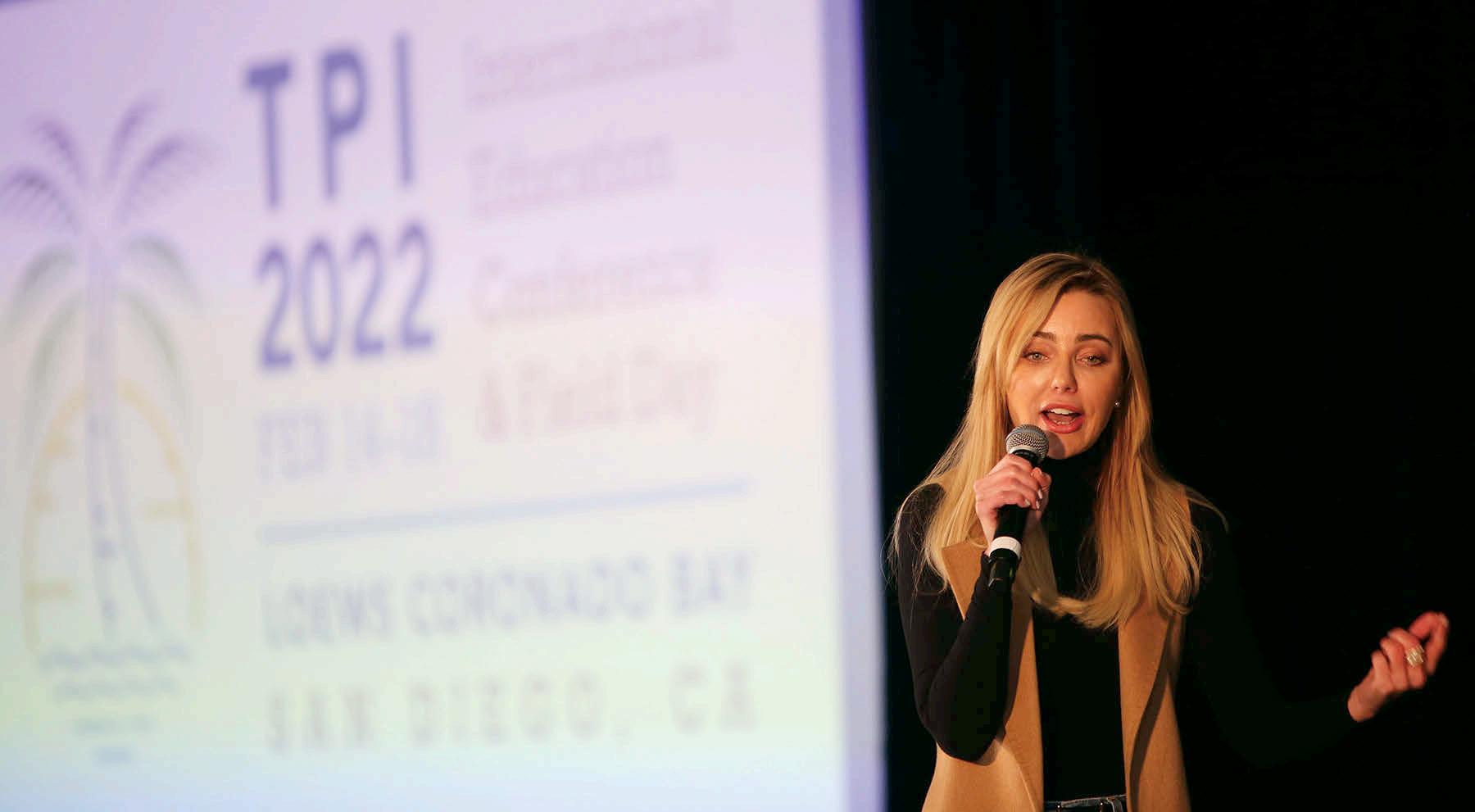
Sarah Frey brought insight and inspiration to attendees as she shared her story as the Thursday keynote speaker of TPI’s 2022 International Education Conference & Field Day. Fittingly described as “America’s Pumpkin Queen,” because she sells more pumpkins than any other producer in the U.S., she detailed that story in her book, The Growing Season: How I Built a New Life—and Saved an American Farm.
Sarah told of growing up with her four older brothers on the impoverished 80-acre (32.37-hectare) family farm, working alongside them in the fields, hunting and fishing, not for fun, but out of necessity. Since the neighboring farm families were living in poverty, too, that was all Sarah knew, until she started school and learned others lived differently.
She said, ‘There were so many events and moments in my early life when my family set me up to succeed. There were some really hard times, too.” She drew attendees into her world through the stories she told, like the staged incident of killing a rabbit with one shot during her first hunt with her brothers that made her feel powerful and competent, but also responsible for feeding the family. How jumping off the dock into the lake because a brother said he’d catch her, but didn’t, taught her to tackle new experiences. And how having her Dad order her to pick up a huge snapping turtle and throw it into the back of the pickup taught her to face her fears and overcome them. Navigating the tensions of the often strifeful and dysfunctional family dynamics was a learning process, too, helping her develop grit and determination. When Sarah saw her oldest brother start on the path all four brothers would follow, entering college as their one-way ticket off the farm to a better life, she determined she would leave too. She moved out at 15 years old, going to high school and college at the same time. Sarah had accompanied her Mom when she sold their melons to small local retailers from the back of their pickup truck. Sarah did her first negotiations with one of those retailers when she was eight years old. She was about 16 when her Mom went to work at a local radio station. That summer, Sarah took over the melon route and grew it from 12 stores to 150 stores.
At that point, the farm went into foreclosure, and by default, Sarah, being the youngest, had to liquidate the assets that were left behind. It was when she sold the last horse, alone on the land, that she says, “I thought about all the family experiences, the laughter, the love, working side by side with my brothers–investing our blood and sweat and tears.” In that split second, all she had done to prepare to leave vanished. She said, “I decided at 17 I would buy the farm, grow a business, and my brothers would come back to work with me. It was a God thing.”
She built the business on the success of that melon delivery route, within a couple years adding a regional supermarket chain to her client list. Then she stopped by the not yet officially opened Walmart distribution center, talked her way to the produce buyer, and got their business, agreeing to supply them with two or three loads of cantaloupes and watermelons a week. Ecstatic as she walked out the door, Sarah got to her pickup when it hit her—Walmart wanted semitruck loads. She called her brother John, who immediately agreed to come back to the farm to work for her. Equally bold moves continued expanding Sarah’s business and one by one the brothers returned to the farm. Frey Farms, headquartered in Keenes, IL, now owns and operates farms and facilities in seven states.
Sarah shared much more relevant information, both in her presentation and in the question-and-answer session that followed with fellow female farm owner Diane Mischel. If you missed her presentation, or if you want to see it again, view it on TPI TV. el.
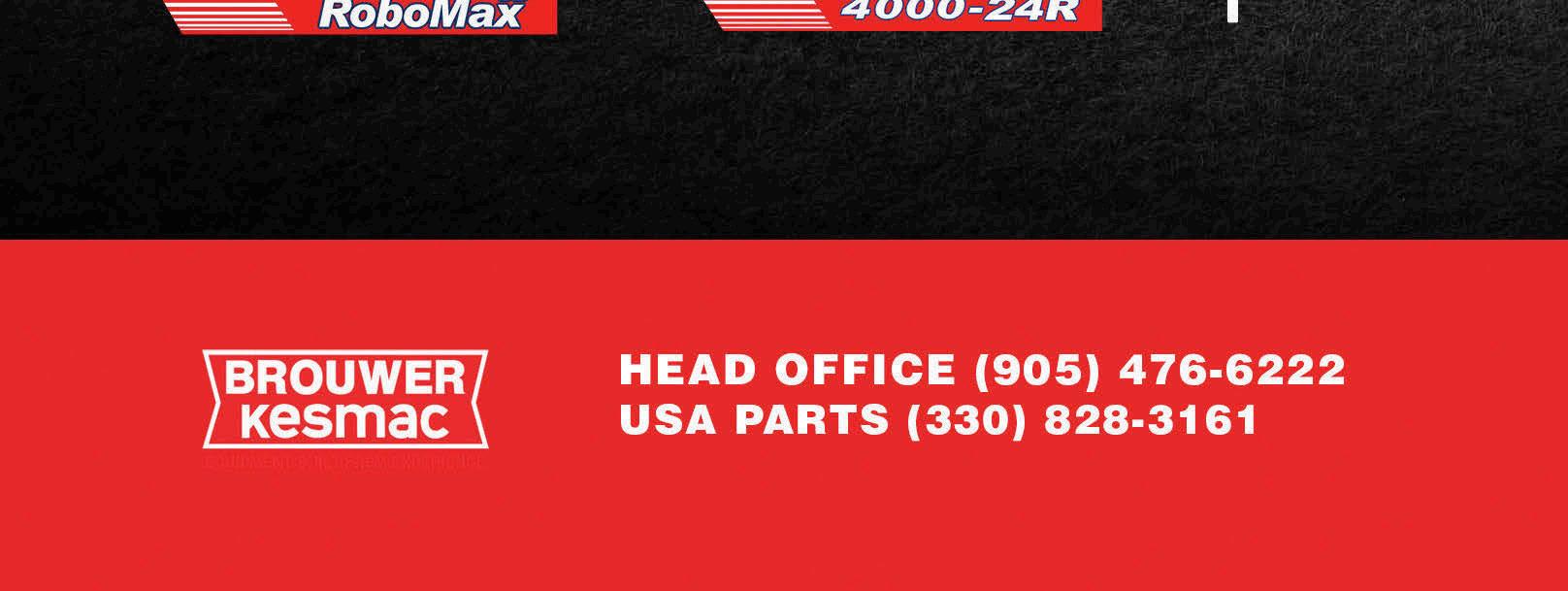
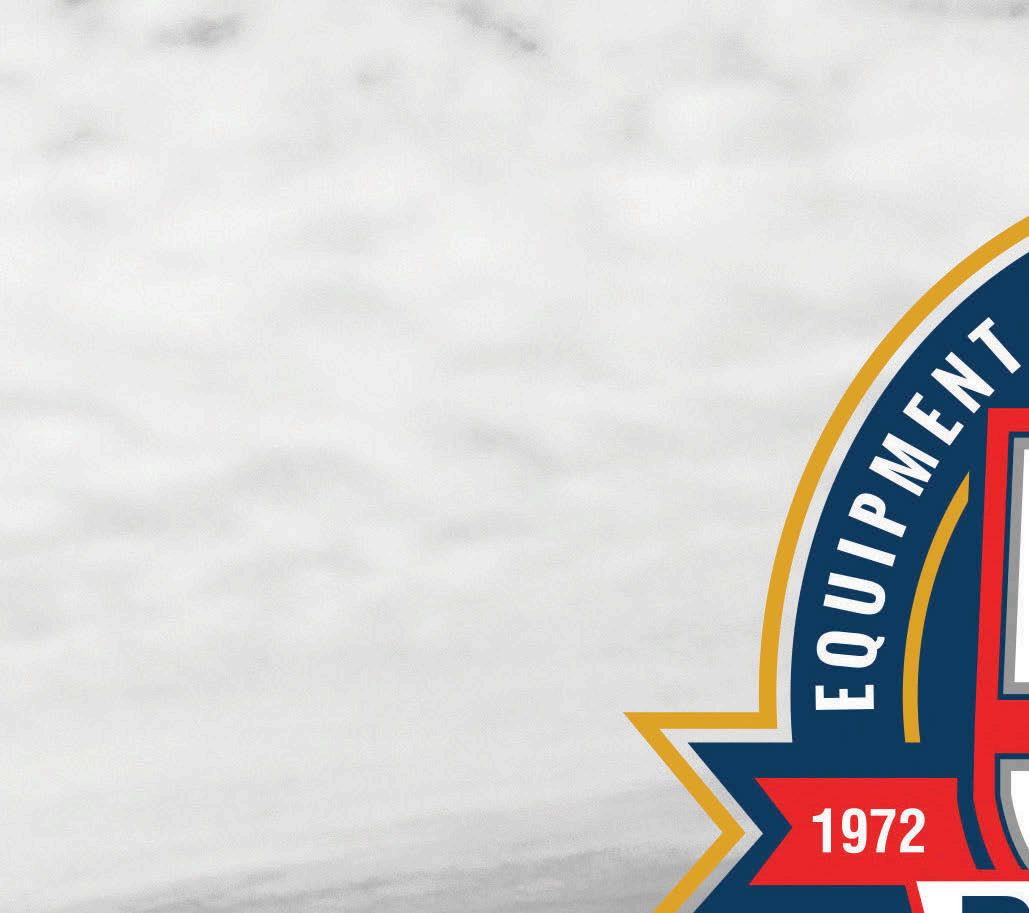

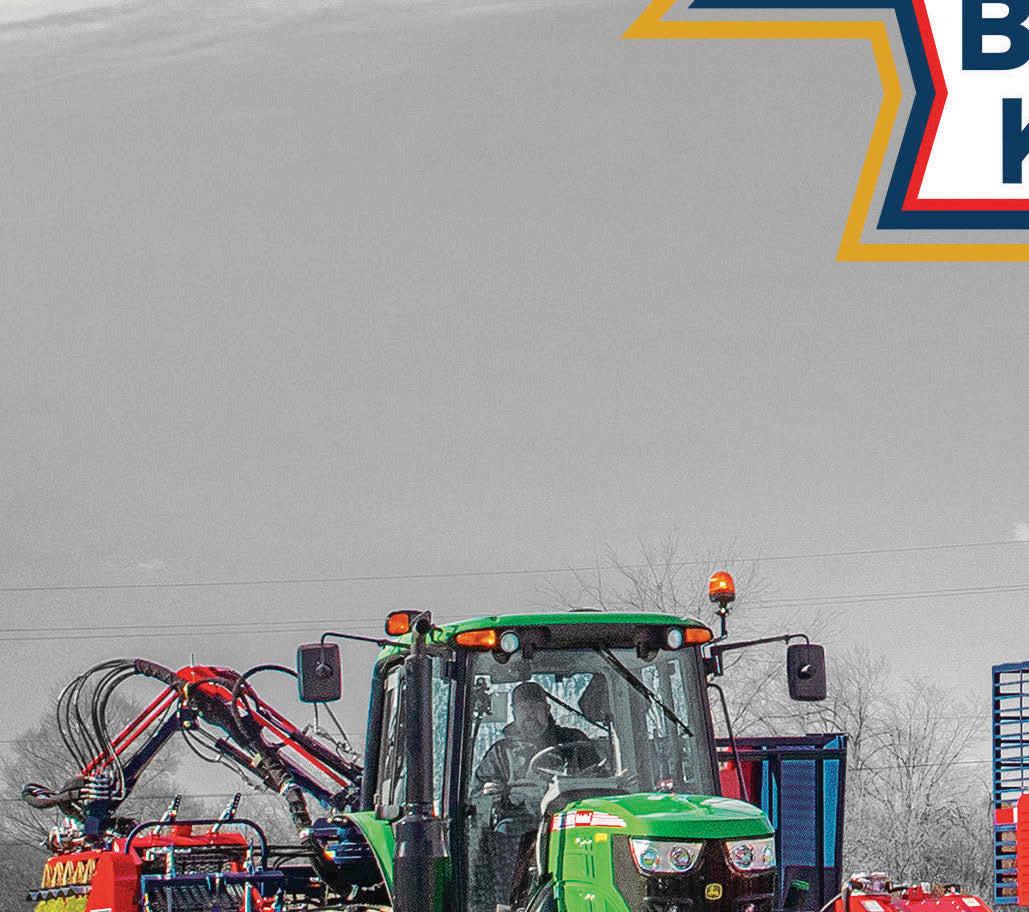
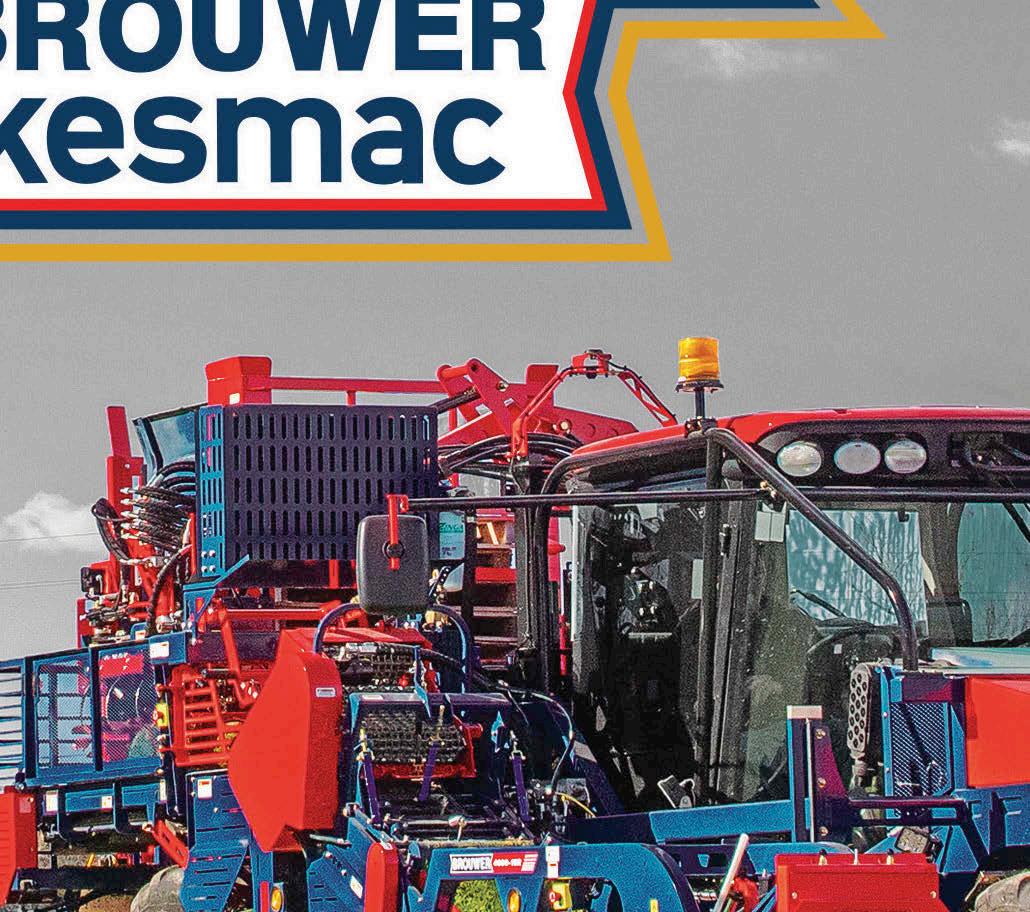
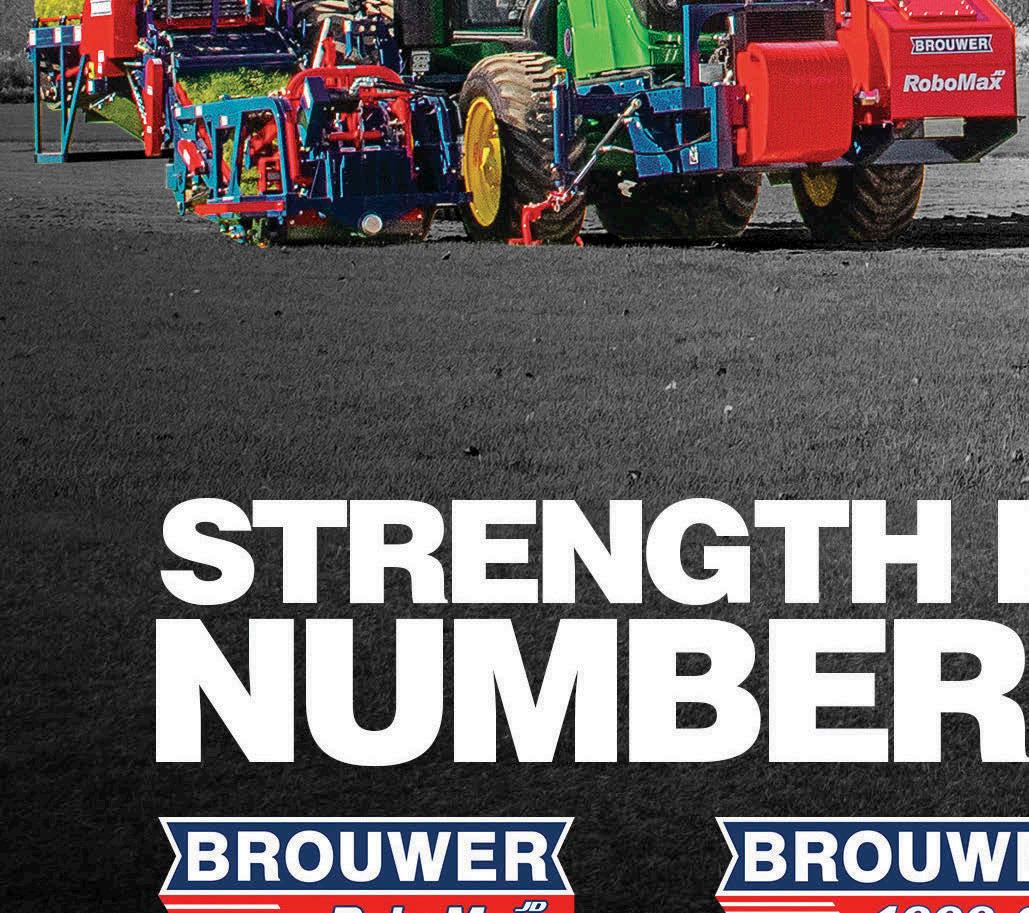
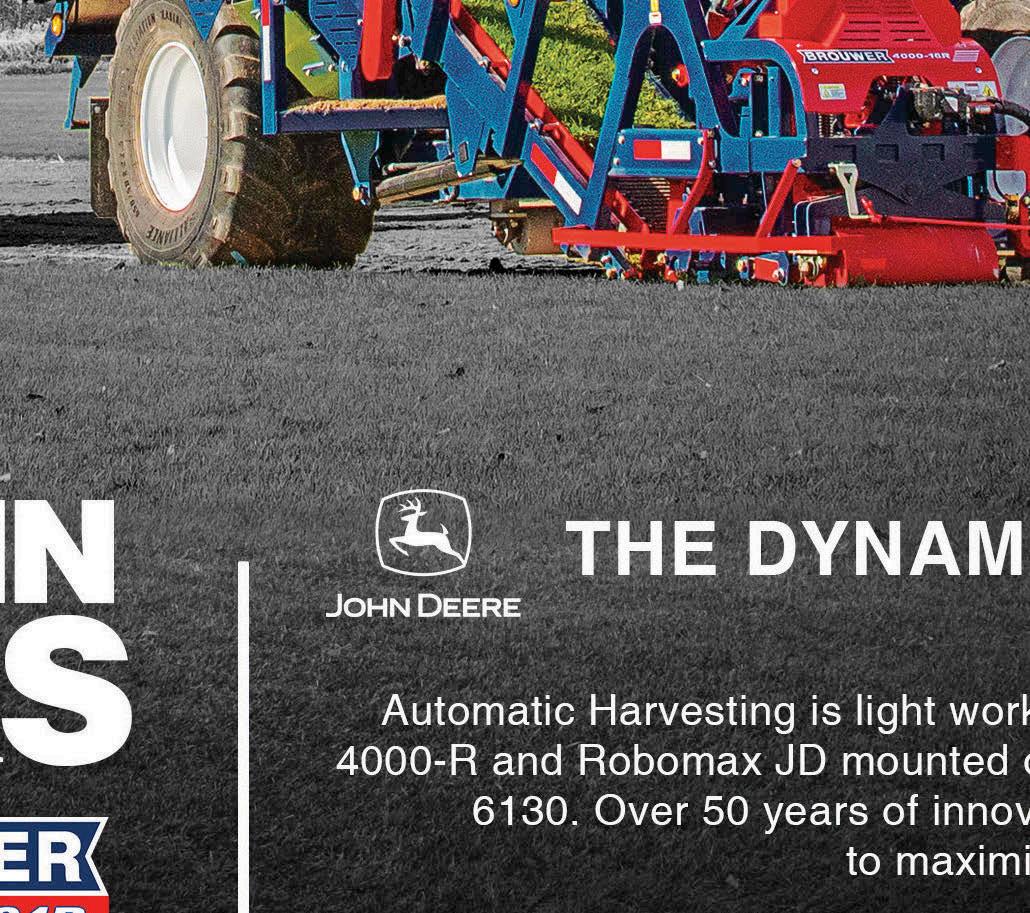
IT'S NO ACCIDENT
TPI’s Thursday morning Conference session opened with prayer as Jimmy Fox, co-owner of Evergreen Turf and American Sod Farms, and a past president of TPI, shared his inspiring testimony. Jimmy Fox was introduced as a calm leader who also expects action; a man who always puts faith and family first; who grew up as a missionary kid in Thailand; was a college dropout; and did not know what a sod farm was until he was 22.
Jimmy started with prayer. Then said, “We all have a story to tell. What makes each one of us different is not where it ends, but the place where it begins.” Just a snippet from his message follows. From 7 to 17, Jimmy lived in Thailand, as a missionary kid. He had attended 13 schools, lived in 21 homes, been to eight states and 15 different countries by the end of eighth grade. His schooling was through the Bangkok International School System, where 50 or 60 nationalities were represented, and the parents of many classmates were in the UN or were high ranking military personnel or IBM executives. He’s stayed connected with many classmates and those relationships have impacted his life.
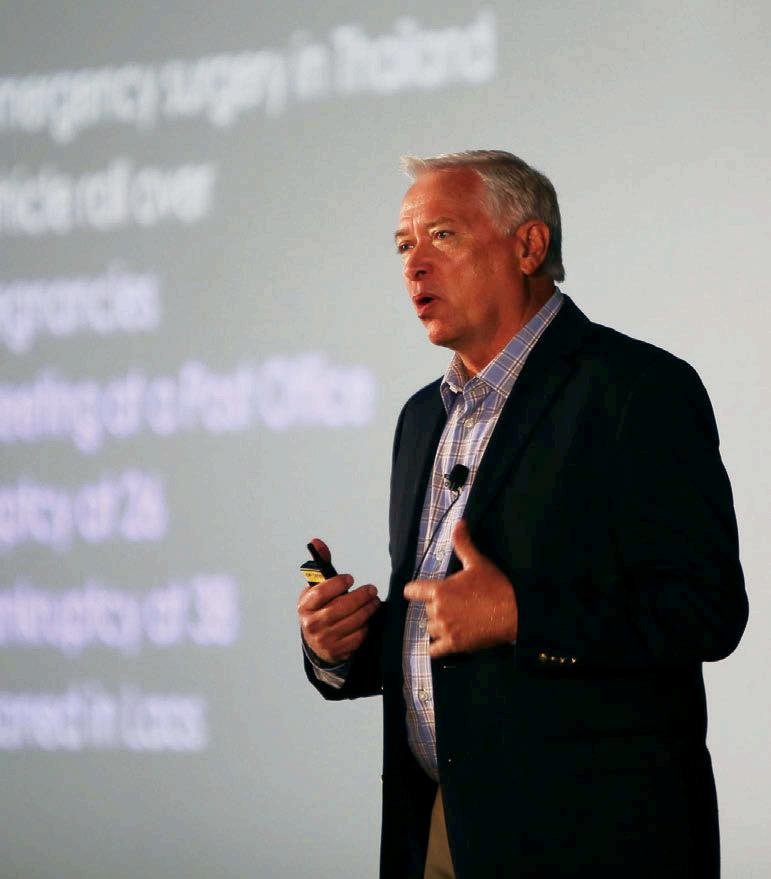
Jimmy said, “Many times, we see God working in our lives by looking back.” While living in Thailand, his Mom was rushed to the military medical center for emergency surgery. Her ovaries had burst, and she would probably have died, if not in the right place at the right time. His Dad was on a trip taking the gospel into the remote villages when his vehicle rolled over. He had typhoid and lost consciousness. Yet, he survived. Jimmy was back in the U.S. and well into life with his wife, Lora, and their three children. Unexpectedly, Lora fell to her knees in intense pain. At the hospital, doctors found a blood clot extending from her hip to her knee. They diagnosed it as a blood clot disorder, telling the couple the condition would likely be fatal during pregnancy so they shouldn’t have children. The staff were amazed to learn they had three. Why are these outcomes what they are? Were these coincidence? Or God’s hand? Too often, the world thinks of miracles as occurrences confined to Biblical days. But as Psalm 77:14 says, “You are the God who performs miracles; you display your power among the peoples.” Not “you were” or “you did.”
Jimmy said, “God puts us in connections with so many people who cross our paths and influence our lives. Look at the opportunities God has put in your life. They aren’t there by accident. It’s a God thing.” Then he shared how that was evident in his career path, from his start working for a copy machine repair company to a sales job in a lawn and garden distribution company, to sales manager for their golf and landscape division, and on to a sales position with another distribution company where he earned his way to equal partner. That company’s success led to a buyout from a large, national company. Then a former customer, Jeff Nettleton, contacted him asking if he knew of a potential investor for the sod company he wanted to start. Jimmy became that investor. The 120 acres (48.56 hectares) they began with has now grown to over 3,000 acres (1,214 hectares) with, as Jimmy pointed out, fellow TPI members always behind the scenes offering “anything you need; we’re here to help.”
Jimmy told of his friend, David Eubank, a man of faith who, with the full support of his family, was on a humanitarian mission, working on the front lines as Iraqi forces were attacking the Isis stronghold in Mosul. They were under heavy fire when he saw a little girl hiding among the dead and dashed to rescue her. The incident was documented and reported by news outlets. Asked why he did it, Eubanks said love, quoting scripture, “Greater love has no man than this ...” And added, we’re not superman or woman, but one person can make a difference; be a soldier of God.
Jimmy said, “When you begin relying on yourself and the resources ‘you’ have accumulated, look back and see how God is in charge of your life and acknowledge that. If you don’t give God credit, your kids and your grandkids will think you’ve done it on your own.” kids
SHOW & TELL SESSIONS
AGAIN A TPI CONFERENCE HIGHLIGHT
Show & Tell sessions, where the year’s new Board of Trustees members tell a bit about themselves and their businesses, have become a Conference highlight. Probably because many involved in turfgrass sod production report their greatest source of information and inspiration comes from their peers.
With TPI’s 2022 International Education Conference & Trade Show the association’s first in-person meeting since 2020, attendees were rewarded with a double-dose of Show & Tell sessions. Presentations were made by the new Board members of both 2021 and 2022. A brief preview of what you’ll find on TPI TV, where all sessions are available for viewing online, follows.
Albrecht Knigge
Albrecht was the first of the three 2022 Board members to present on Thursday. Albrecht got into the sod business in 1992 on the farm in Pattensen, Germany (near Hanover) that has been in the family since 1370. His company, Rasenland (literally, Grassland) now has six locations around Germany. The newest Rasenland farm near Frankfurt will be the first farm in Germany to have certified organic turfgrass production. Rasenland Pattensen will host the ETP Seminars & Turf Expo this July 7-8. They look forward to seeing many TPI members.
Larry LeMay
Larry LeMay was the first of two Show & Tell presenters on Tuesday. He started his three-year term in 2021. Larry is president of A-G Sod Farms but is not an owner. He has been with A-G since 1994 and currently works with Joel Addink, company co-owner, to oversee the operations of six sod farms in three states. Larry was born and raised in Corcoran, CA. He grew up on the 85,000-acre (34,398-hectares) farm that his father managed. He was active in sports through college, including swimming, baseball, and football. Fresno State won a football national championship while he played for them.
Ronald Schiedel
Ronald Schiedel followed Larry LeMay. He also started his threeyear term January 1, 2021. Since its inception in 1975, Greenhorizons Sod Farms has been a family business, growing and harvesting sod on more than 6,000 acres (2428 hectares) of land. The family roots run deep, and the business is currently operating with its fourth generation. An avid photographer, Ron had many great pictures in his presentation, including family, farms, projects, and even wildlife and a BigYellowBag. Ron is stepping out of the day-to-day operations and said that he is now, for the most part, “cheerleader, mentor, and consultant.”
Lindy Murff
Next up was Lindy Murff from Murff Turf Farm, Crosby, Texas. His dad started the business, about 45 minutes from Houston, in 1969. Those 10 acres (4 hectares) have grown to 3,800 acres (1,538 hectares). A couple of rather unusual uses of their fields have been paratroopers practice landings and National Guard helicopter landings. Besides many pictures of the farm operations, Lindy shared quite a few family photos. Family is very important to Lindy. He and his wife Amanda (Mandy) have three active teenagers, Noah (18), Emma (15) and Cooper (13).
Wade Wilbur
The closer for the day was Wade Wilbur. He is co-owner of Sod Shop companies in Lawrence and Wichita, Kansas, with his uncle, Ted Wilbur. They also have a hardscape supply store. Wade received a degree in Agriculture Education from Kansas State in 2002. His career started as an ag teacher and FFA Advisor. He transitioned into the landscape business and then into sod production. They now farm around 1,300 acres (526 hectares). His hobbies include boating, travel (especially by motorcycle) and live music.
RESEARCH UPDATE: LEARN THE LATEST SCIENCE ON IMPROVING SOD TENSILE STRENGTH
During TPI’s 2022 Conference education sessions, Dr. Aaron Patton, Professor, Horticulture & Landscape Architecture, Purdue University, presented his research report on improving sod tensile strength. This study developed in conjunction with a broader, initial study focused on filling a critical need: diversifying sod production with sustainable turfgrasses. Patton stated that Kentucky bluegrass is the primary grass used in sod production in the northern U.S. despite the introduction of improved, low-input species, such as fine fescues. Collaborative research at Purdue and the University of Minnesota is investigating low-input sod production, focusing on fine fescues, with projects funded by multiple sources, including The Lawn Institute (TLI). This research addresses the goal of sod producers to generate maximum production in the shortest time with the minimum input of resources. And, because the selection of turfgrasses by sod producers is what is planted by end users, this research can have a positive impact on the environment and sustainability in turfgrass management practices. Patton reported that experiment one concentrated on seeding rates and Nitrogen fertilization rates and application timing on a range of 100 percent fine fescues and no netting. Experiment two concentrated on the same areas, but with a mix of cool-season grasses that included fine fescues, and one mix with annual clover, and one with perennial clover for a “bee lawn.” In all these projects, they looked at sod harvesting results at 11, 12, 14, 20, and 22 months and tested tensile strength using both a sod tensile strength devise and “commonsense” observation. They also did shelf life and transplant studies, with sod stored (on pallets) for 24 or 72 hours, then placed back in its original location. Two weeks later, the same sod was re-harvested to observe rooting. After sharing detailed research data, Patton concluded with “What We’ve Learned.” Strong creeping red fescue, alone or in mixture, can make high quality sod with reduced inputs. Creeping red fescue needs to be included in fine fescue blends. Seeding rates had no effect, and Nitrogen rates only a very small effect on the sod; the species selection had much more impact. Benefits to promote include low input/low maintenance, salt tolerant, sustainable, and shade tolerant. To request the full study, email Dr. Patton at ajpatton@purdue.edu. ant, dy,

FINDING WORKERS—CHALLENGES AND SOLUTIONS
Shawn M. Packer (left), principal at JPH Law and Lynn Jacquez (right), principal at CJ Lake, LLC
With finding workers a top issue across the globe, TPI’s 2022 International Education Conference & Field Day had an education session to address it, “Challenges and Solutions to Find Labor.” Presenters were Lynn Jacquez, principal at CJ Lake, LLC; and Shawn M. Packer, principal at JPH Law. They reported they represent many labor associations and those who already are participating in current H-2A and H-2B programs. Jacquez and Packer delineated some of the challenges inherent with these programs and provided insights on how to handle them. They closed their session with a Q&A segment. A few snippets of their presentation follow. They stated that the foreign worker programs are the U.S. government’s way of supplying labor when U.S. workers are not available. The H-2A program is for workers in agriculture. For turfgrass sod production, agriculture includes, but is not limited to, planting, growing, delivering, and installing. The H-2B program is for non-skilled workers involved in tasks such as lawn maintenance and hardscape installation. TPI’s recent work in government relations solidified turfgrass sod’s status as an agricultural product. These programs also regulate what the hiring company must provide for the foreign workers in each program. Packer explained that the complexity of classifications for how you use your H-2A workforce is one of the many tightropes to navigate. Consider this example. If you are a farmer, and you grow a product that you then install into someone else’s property, it is a step of your farming operation, so it’s classified as agriculture. Thus H-2A workers could be on that crew.
Packer further reported that one gray area comes in with any maintenance work that would take place on the newly installed sod, or if the same crew were going to install other products, such as nursery stock or hardscape items. If those tasks are all performed under the single business parameters of your farming operation, it “should” be allowed. However, if the farming operation “loans” out the labor to another segment or department of your company that is not involved in any of the procedures performed within the production operations, it does not qualify as agriculture. Another gray area is the “nurture” versus “maintenance” question. How far can you go in classifying the practices used to ensure the growth and stability of the product installed as nurture? Once you shift to maintenance, it doesn’t qualify as ag. The other gray issue to determine is the location of the work, and the other locations where the worker may potentially be working. If the agricultural entity (the sod producer, or the production segment of a sod farm with multiple departments) has 75 contractor companies that it supplies with the materials for the jobs, try to plan out as best you can what the next ten months are going to look like for your workforce, and try to have as many tasks listed as possible, showing as much diversity as possible, to enable designating those tasks as agriculture. Packer said, “Frankly, that complexity—how far can I go? How far is too far?—is why I have a job.” Jacquez added that the classification as agriculture depends on your business model. Are you a direct client? Or are you a labor contractor? She said, “Underlying all of this is the idea that if we were “nicer” companies to work for, we’d have the domestic workers we need to do our work.”
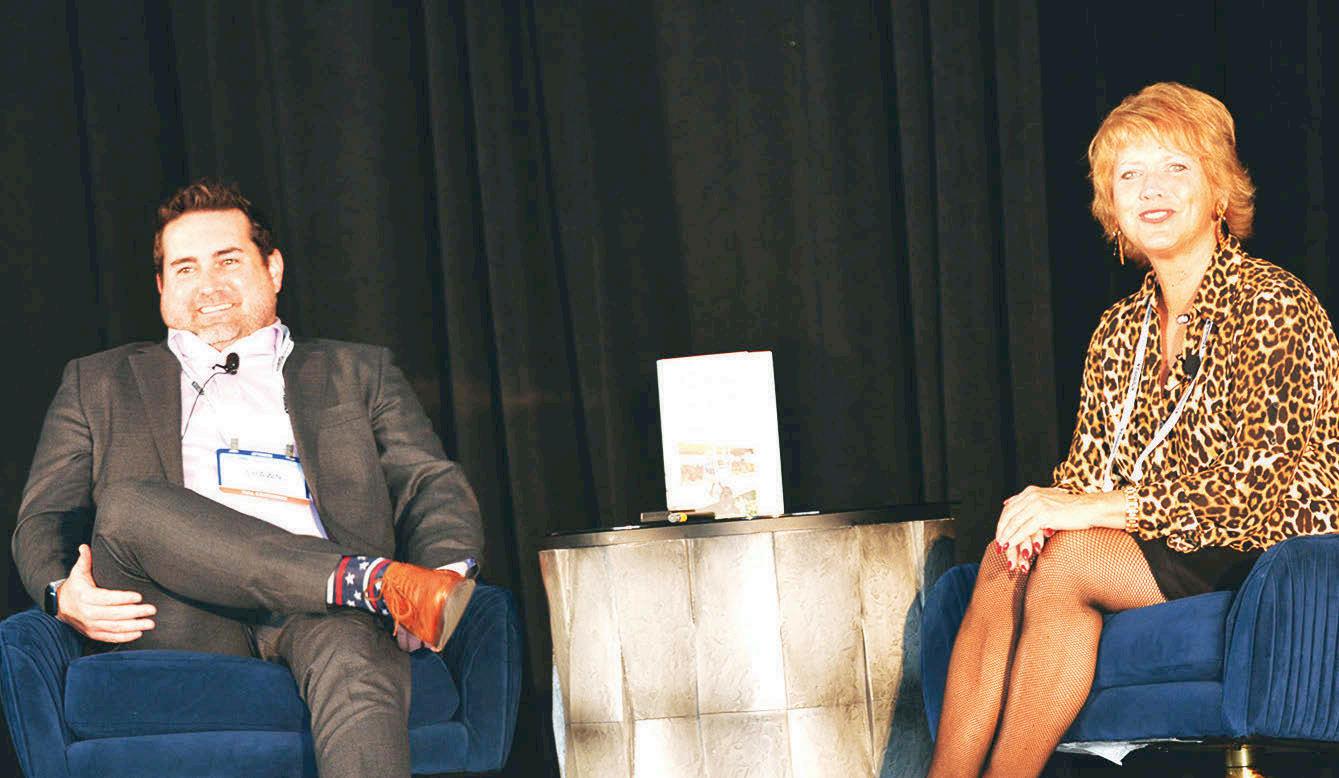
And There Was So Much More!
Tying into the labor-related presentation, was the session on “TPI Government Relations.” TPI’s Executive Director Dr. Casey Reynolds provided an overview of what has been accomplished in this area over the past year and a report on ongoing issues and potential areas to address on the horizon. Dr. Reynolds’ work with governmental agencies has resulted in significant success. These have been reported in Turf News and TPI’s online newsletter, Industry Harvest, and they are posted on the TPI website www.TurfGrassSod.org. And TPI’s 2022 International Education Conference & Field Day provided even more opportunities for education, visiting with suppliers, and networking with peers. Though many of the Conference education sessions were captured on video for viewing on TPI TV, you really had to be there in person to experience all that was offered. there
RESEARCH UPDATE: HERBICIDE RESISTANT POA ANNUA
During TPI’s 2022 Conference education sessions, Dr. Jay McCurdy, associate professor and turfgrass extension specialist in the Department of Plant and Soil Sciences at Mississippi State University, presented a research update on herbicide resistant Poa annua. The USDA-SCRI Resist Poa Project, funded by a four-year grant, is a research collaboration involving 14 universities. McCurdy reported numerous biotypes of Poa annua exist. It is highly diverse and difficult to describe monolithically— and it’s a prolific plant. Though it’s viewed as annual (thus the name) it can perennialize. Poa annua makes up close to the majority of herbicide resistance in turfgrasses. Herbicide resistance is defined as “the inherited ability of an individual plant to survive an herbicide application that would kill a normal population of the same species.” Strategies for combating Poa with herbicide treatments use a combination of timing—preemergence, postemergence, later preemergence, and early postemergence—and different herbicides at the same time or sequentially. Timing is a critical component of Poa preemergence control. Incorporate Growing Degree Days (GDD) data when monitoring conditions to observe peak germination and the emergence of Poa. Attendees received copies of the collaborator-developed Herbicide Classification Poster which consolidates key information by site of action, chemical family, active ingredient, product examples (trade name) and application timing. The site-of-action groups are numerically categorized by the Society of Weed Science. McCurdy cautioned that too much reliance on herbicides can lead to more herbicide resistance. Research has concluded that non-chemical practices are an important complement to herbicides. Any one strategy alone will have limited success. Among the multiple strategies McCurdy detailed were turfgrass species and variety selection, fertility control and increasing phosphorus levels, deep and infrequent irrigation because Poa is a water loving, short-rooted plant, nozzle selection for optimum deposition on the leaf surface, and fraze mowing for physical removal. Looking to what’s next for Poa control, McCurdy listed several possibilities, including identification, mapping and sitespecific precision application, and new delivery methods such as deposition aides and nano particulations. Dr. McCurdy’s presentation is available for viewing on TPI TV. For further information, email him at jmccurdy@pss.msstate.edu. ys her
Your Trusted Partner


30+ years of experience in the sod seed industry


Leading Edge Genetics Strong Agronomic Recommendations Free Soil Testing Program L S F
